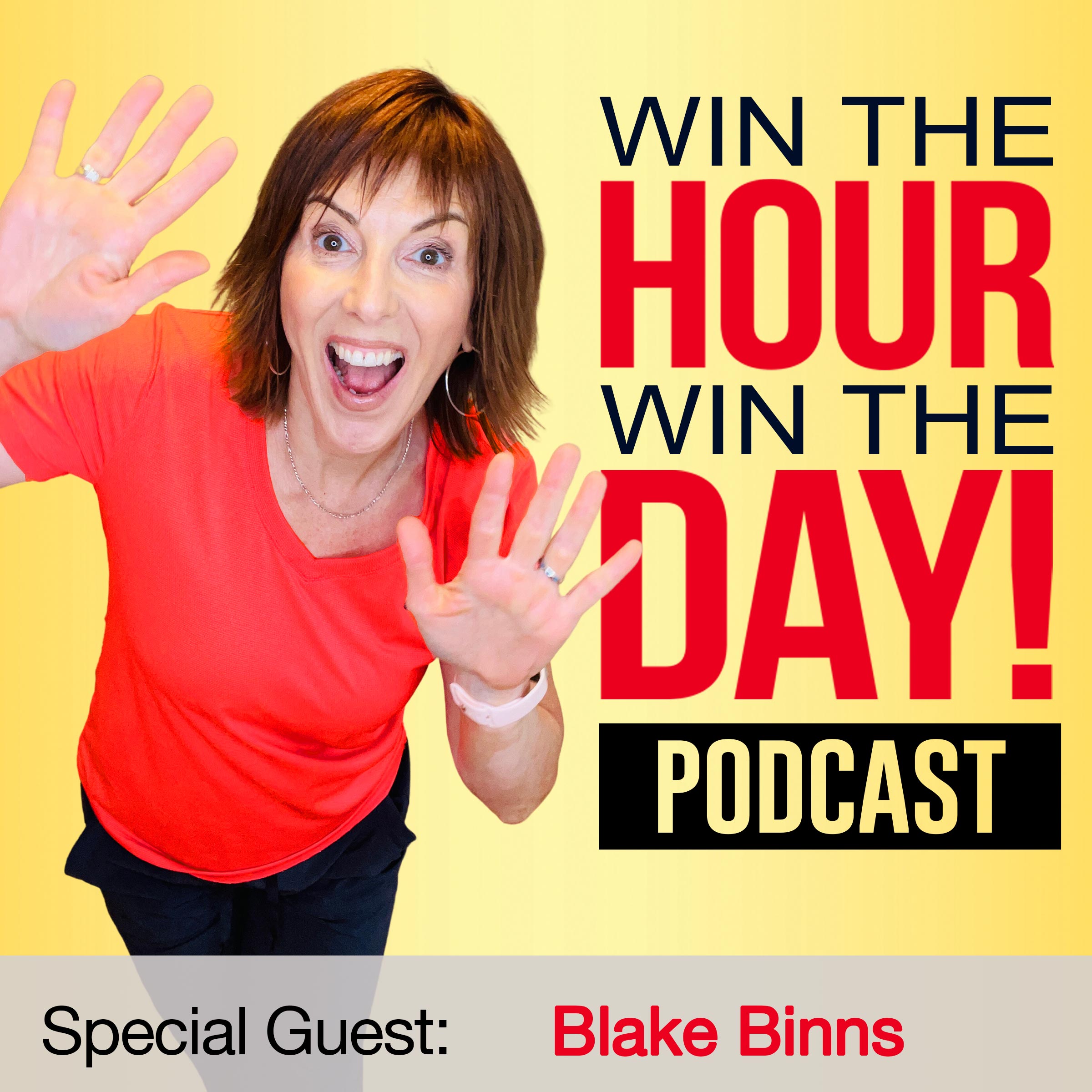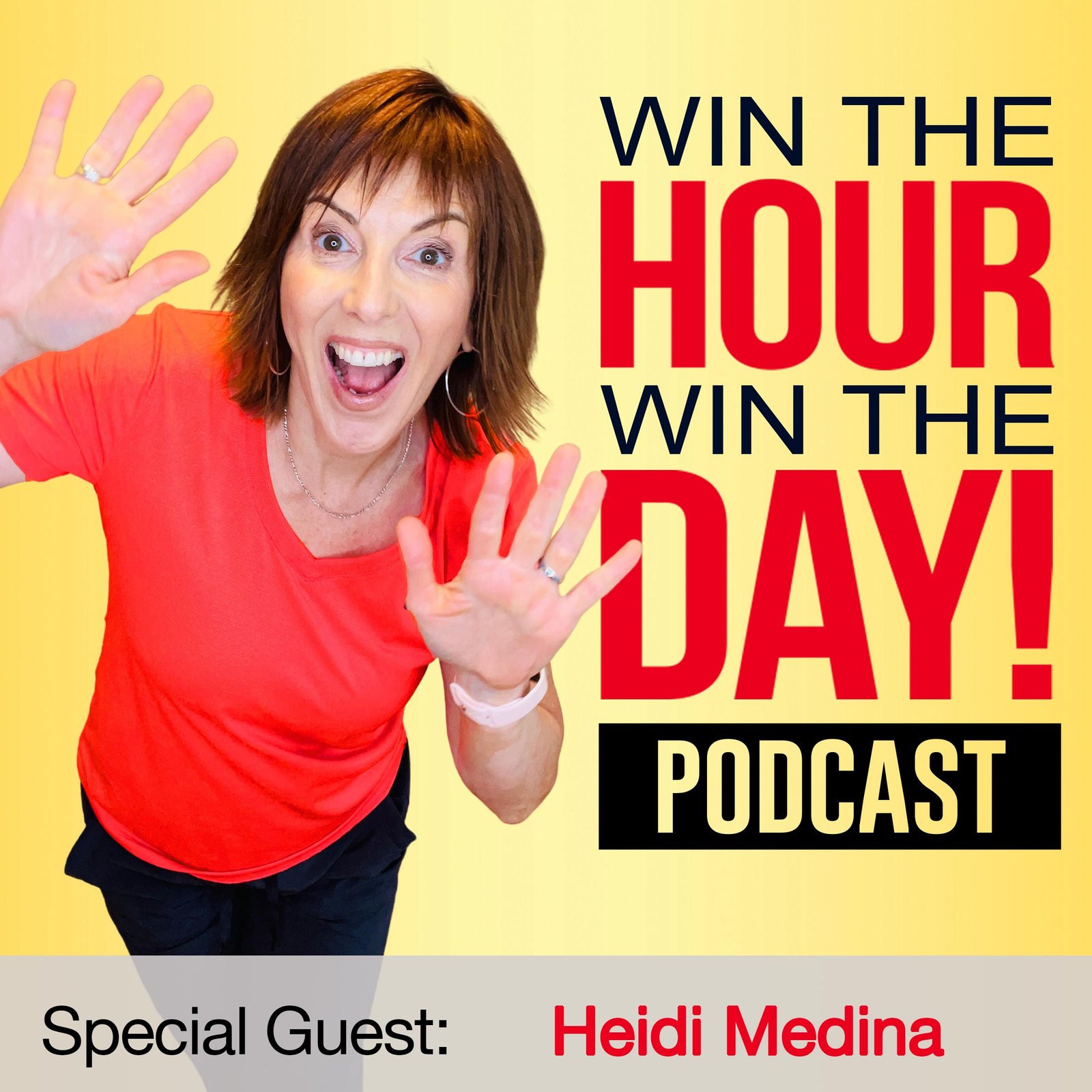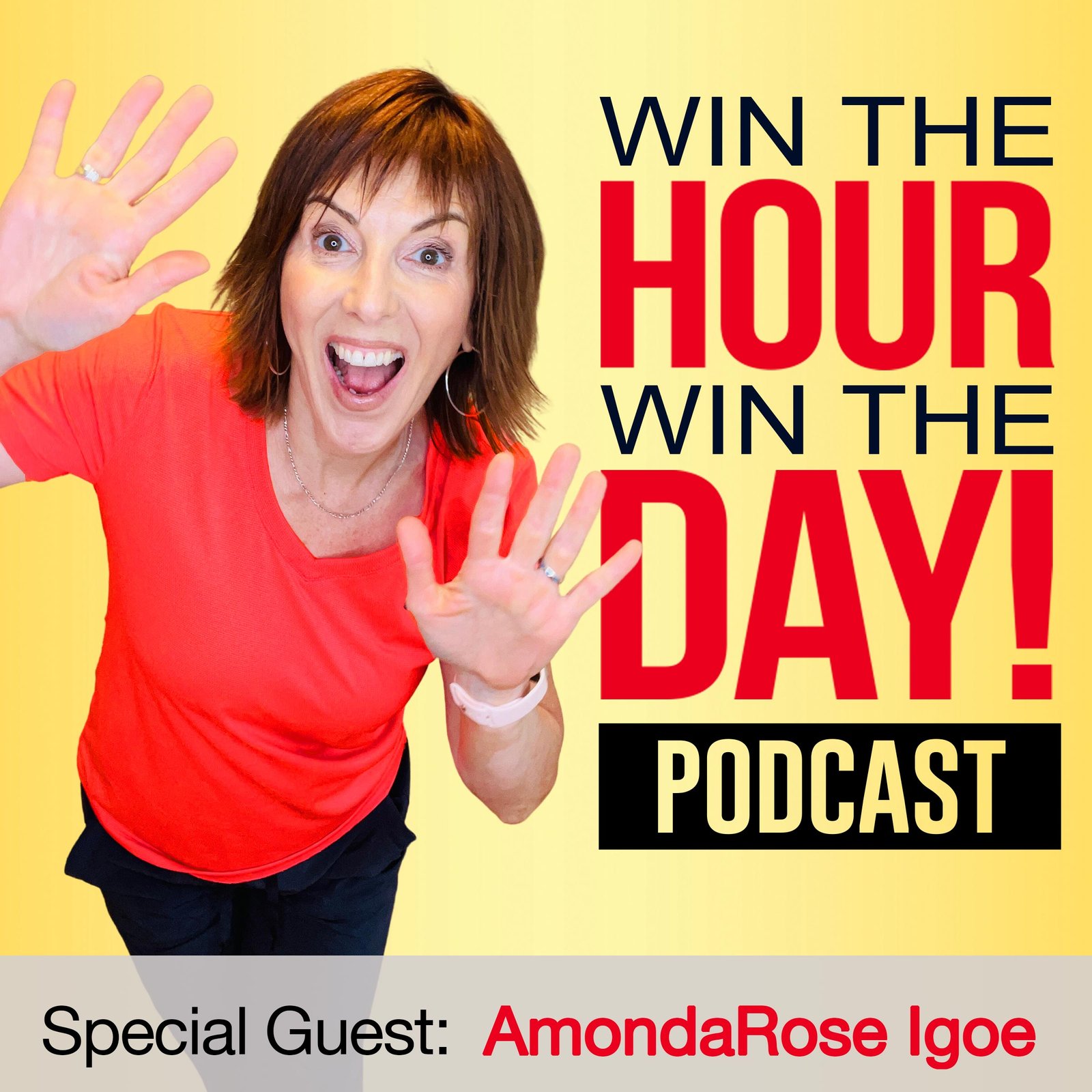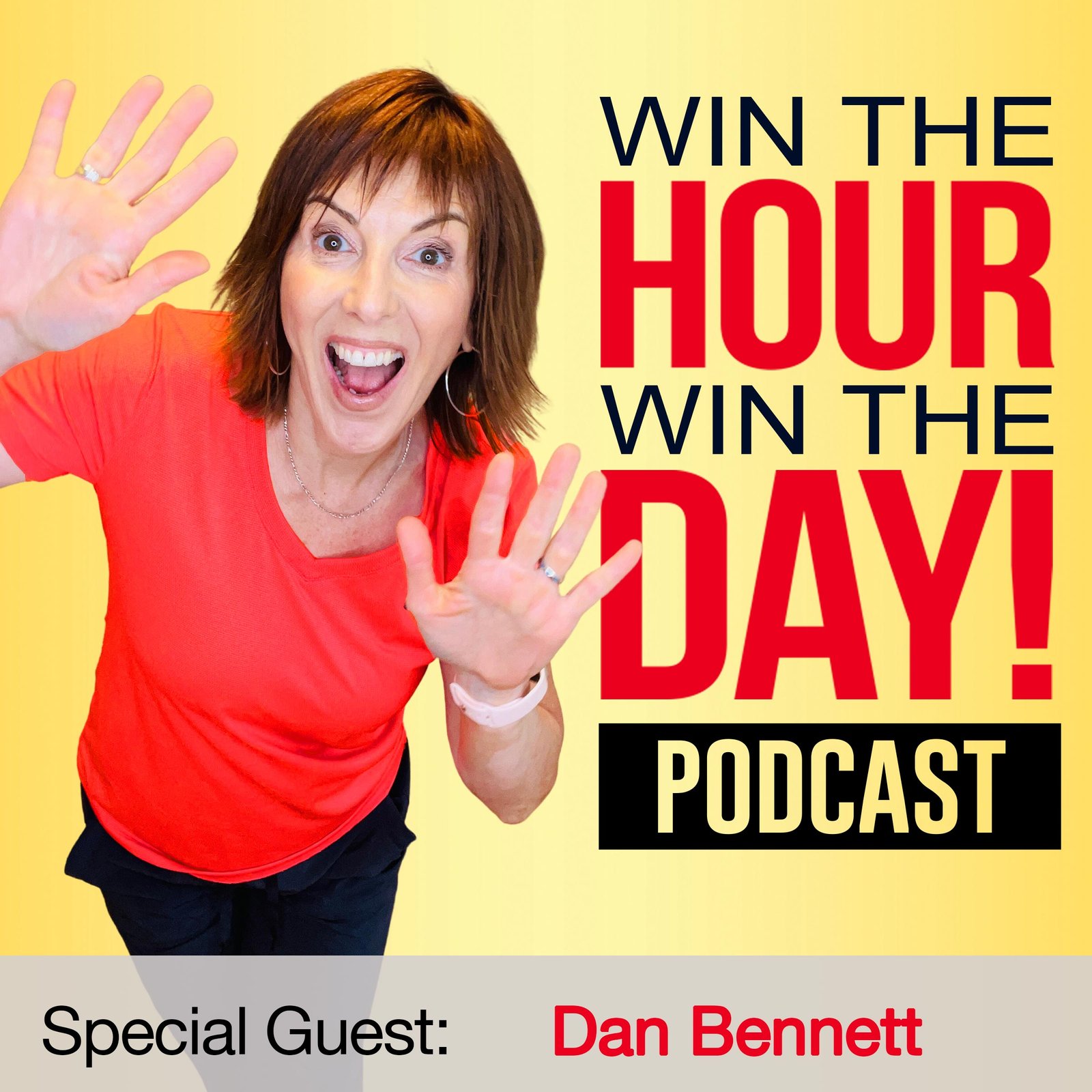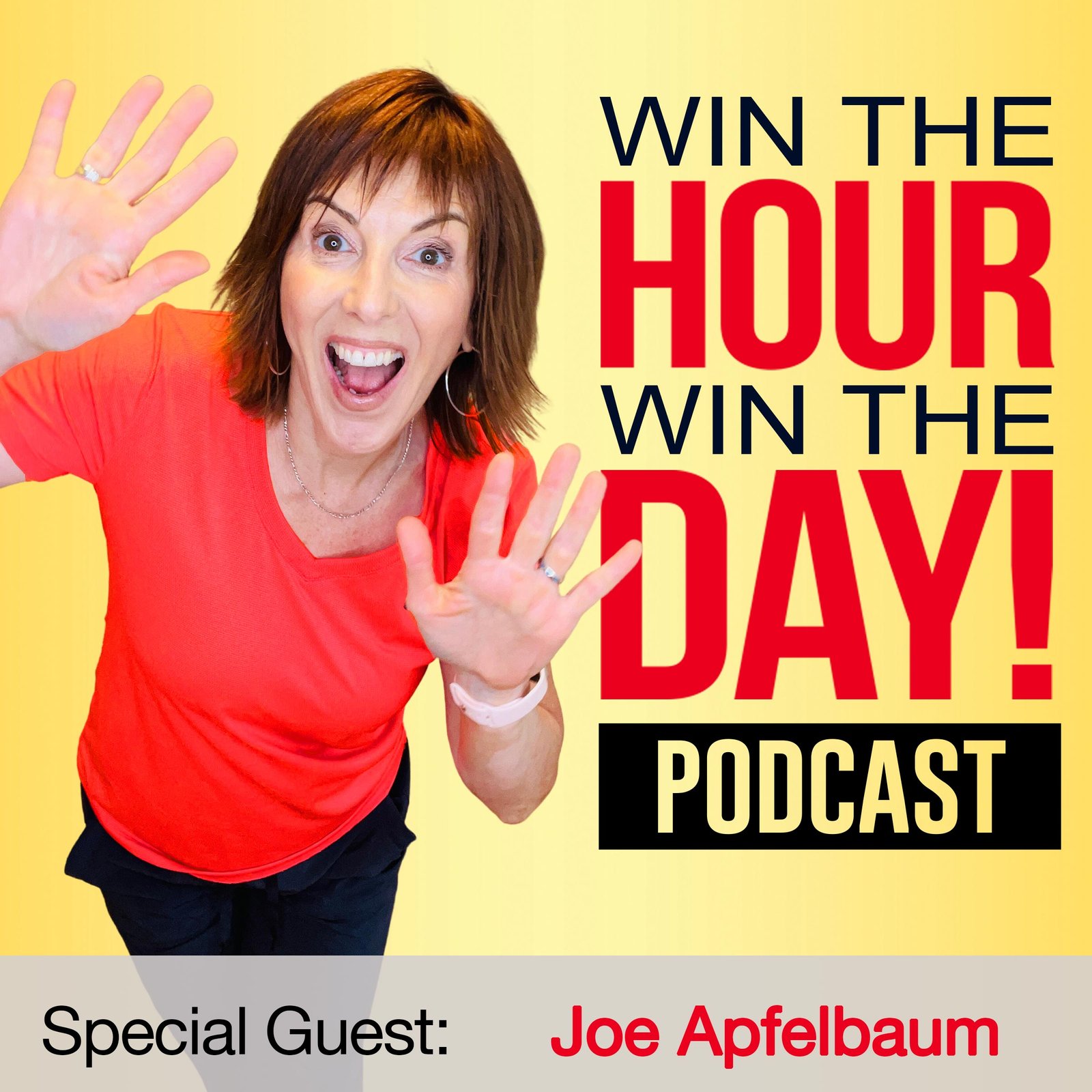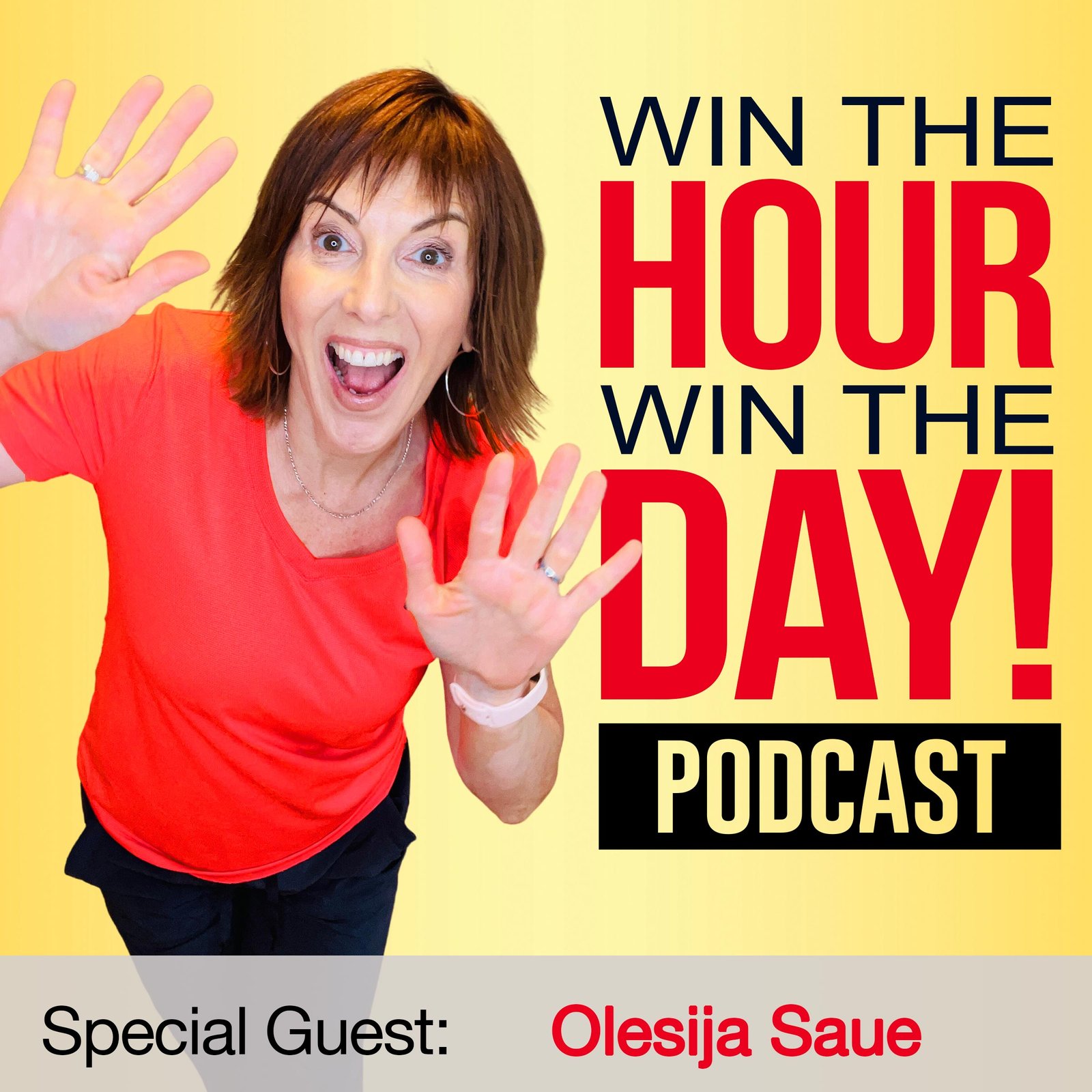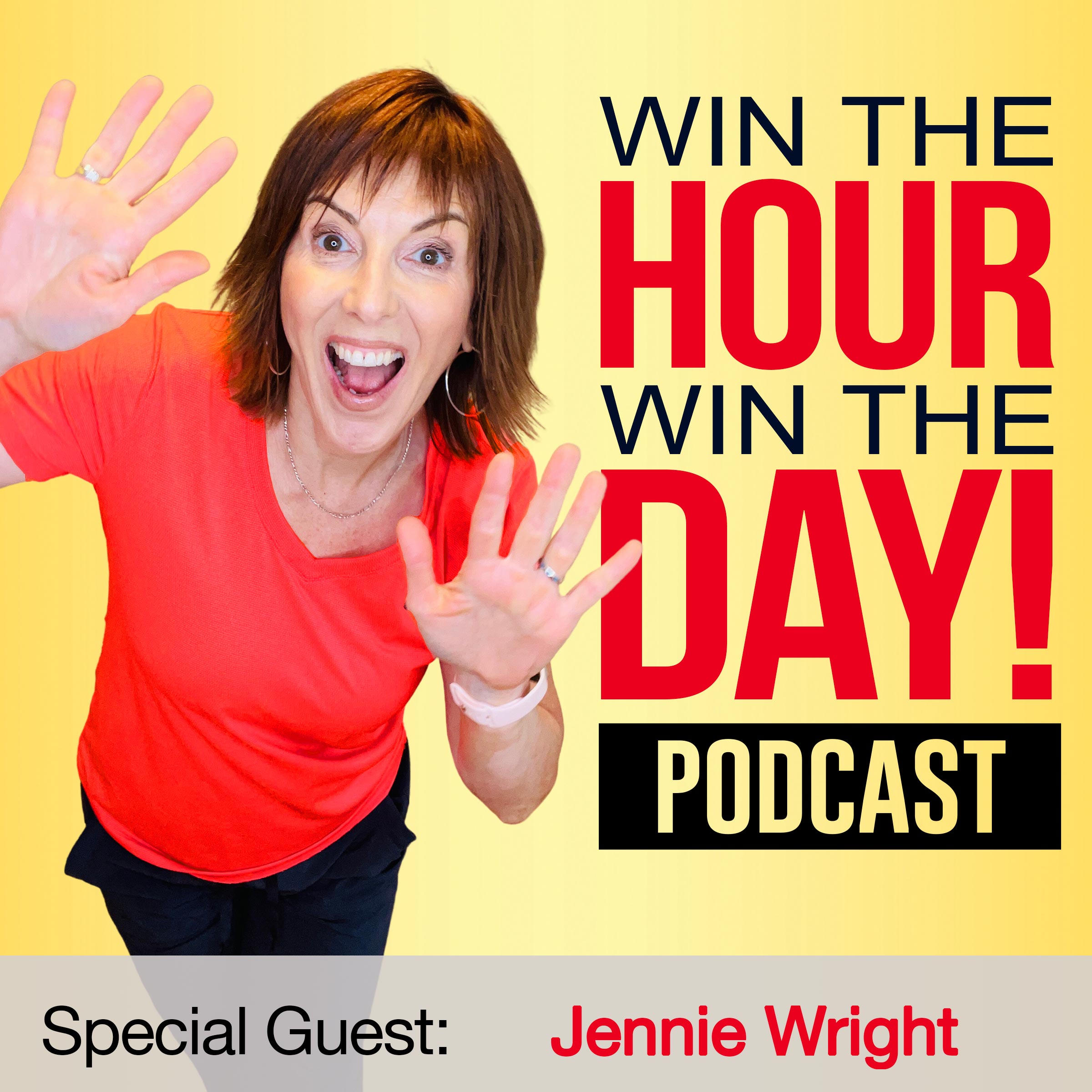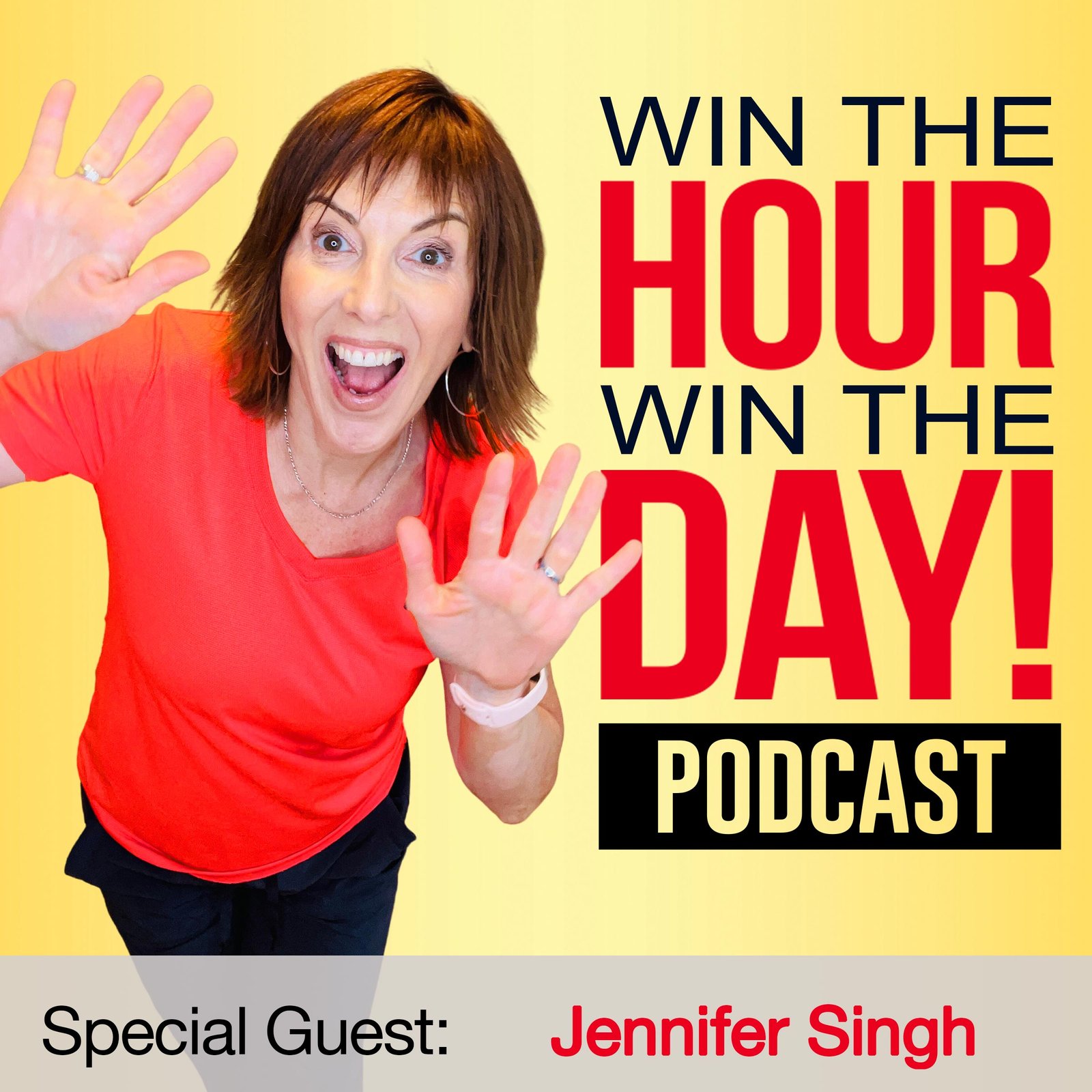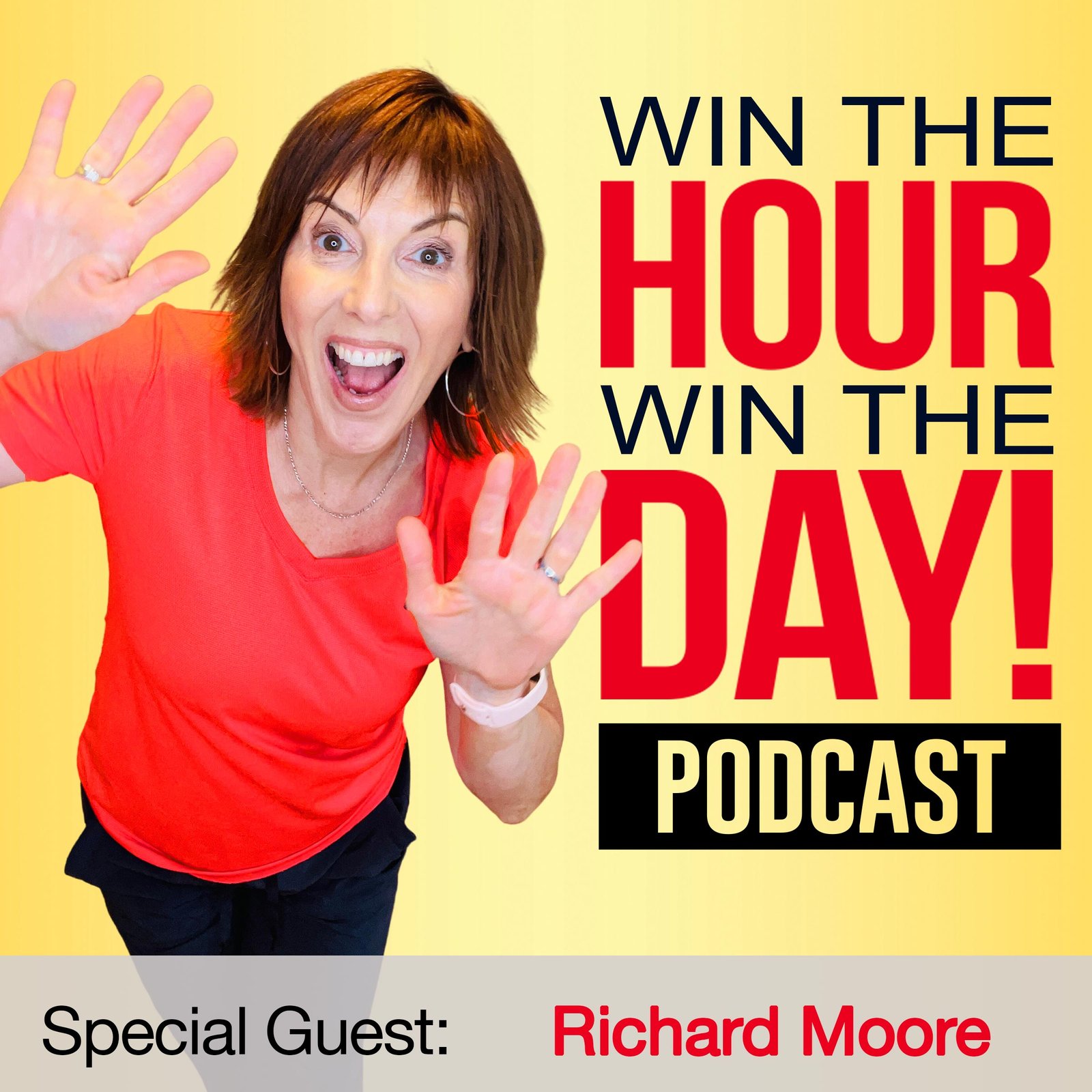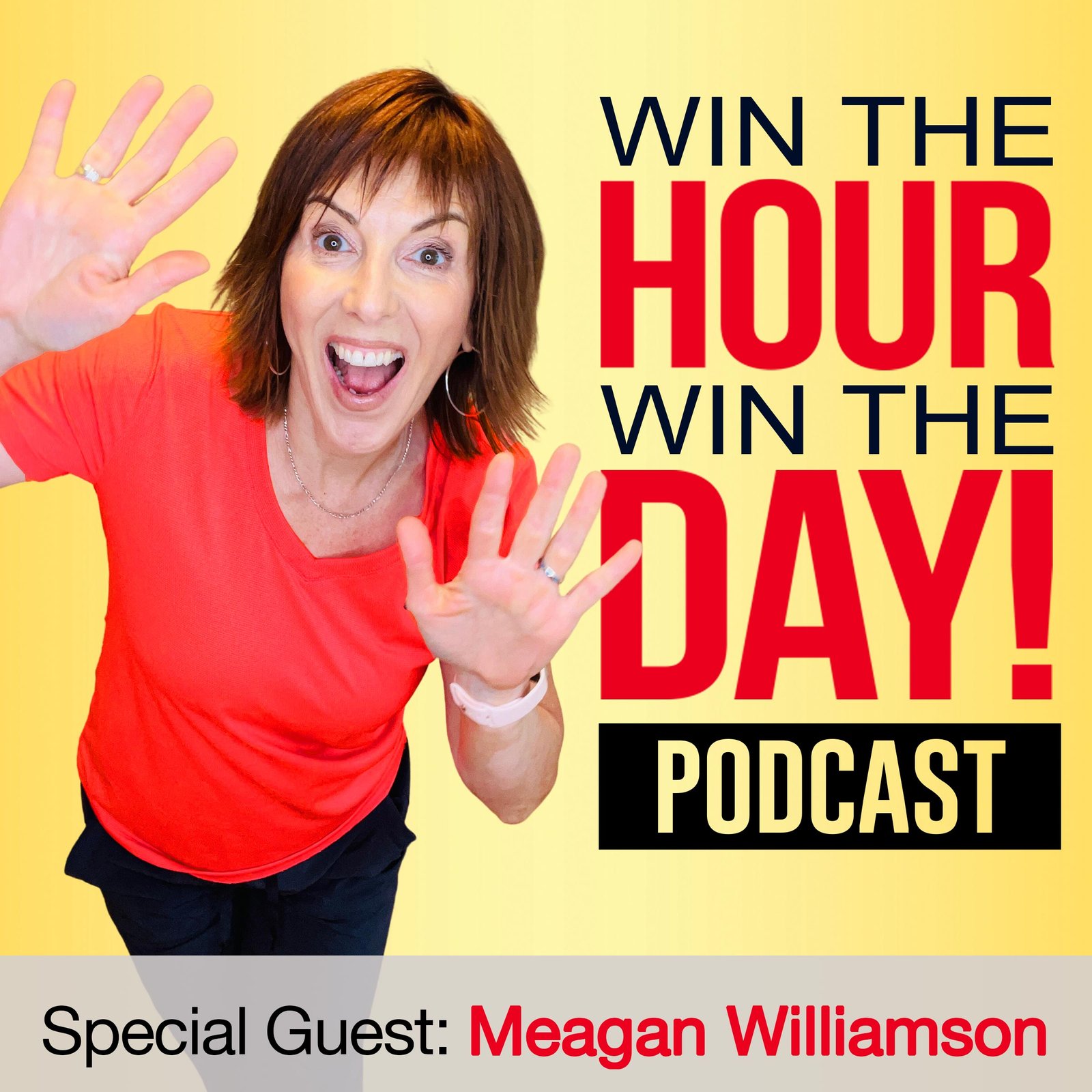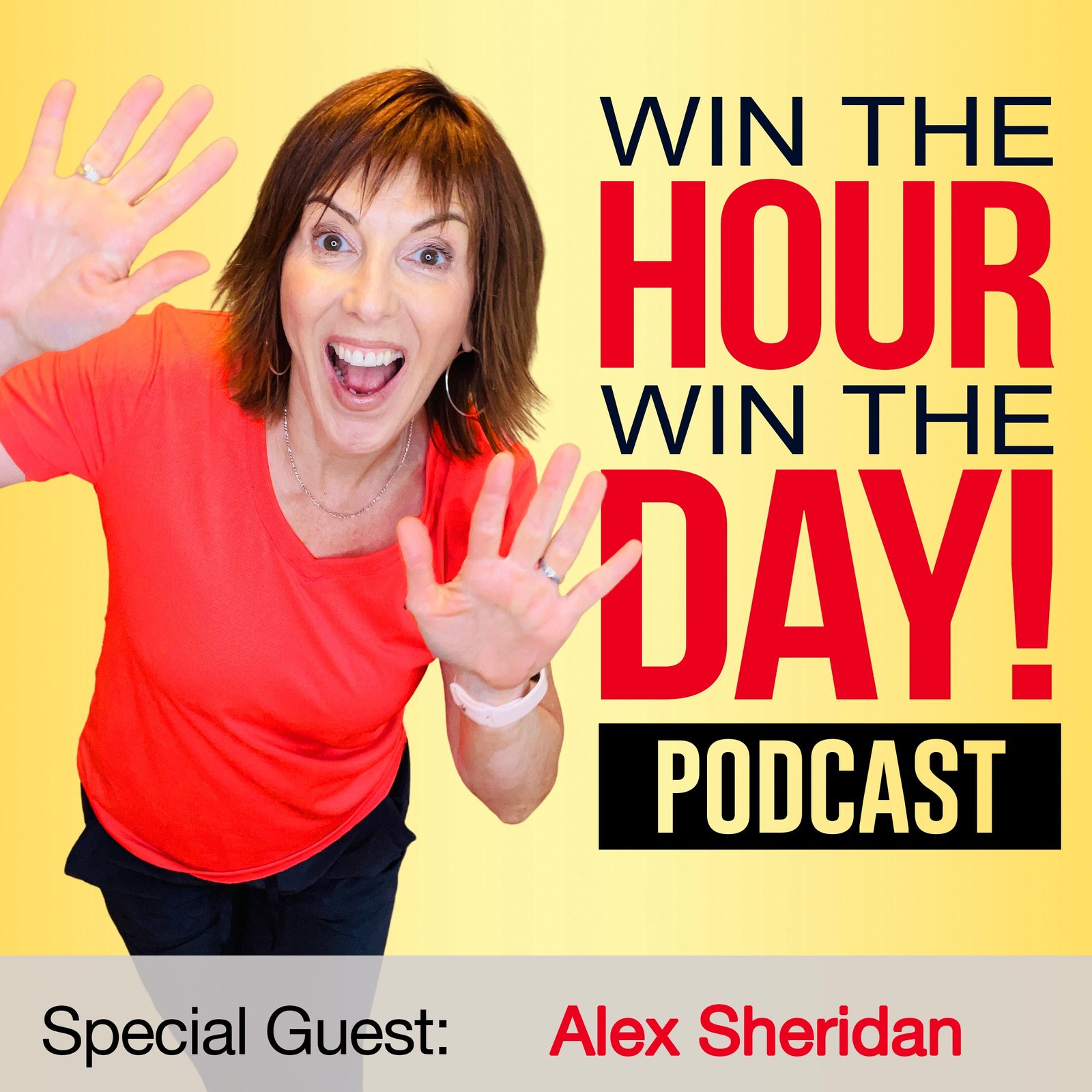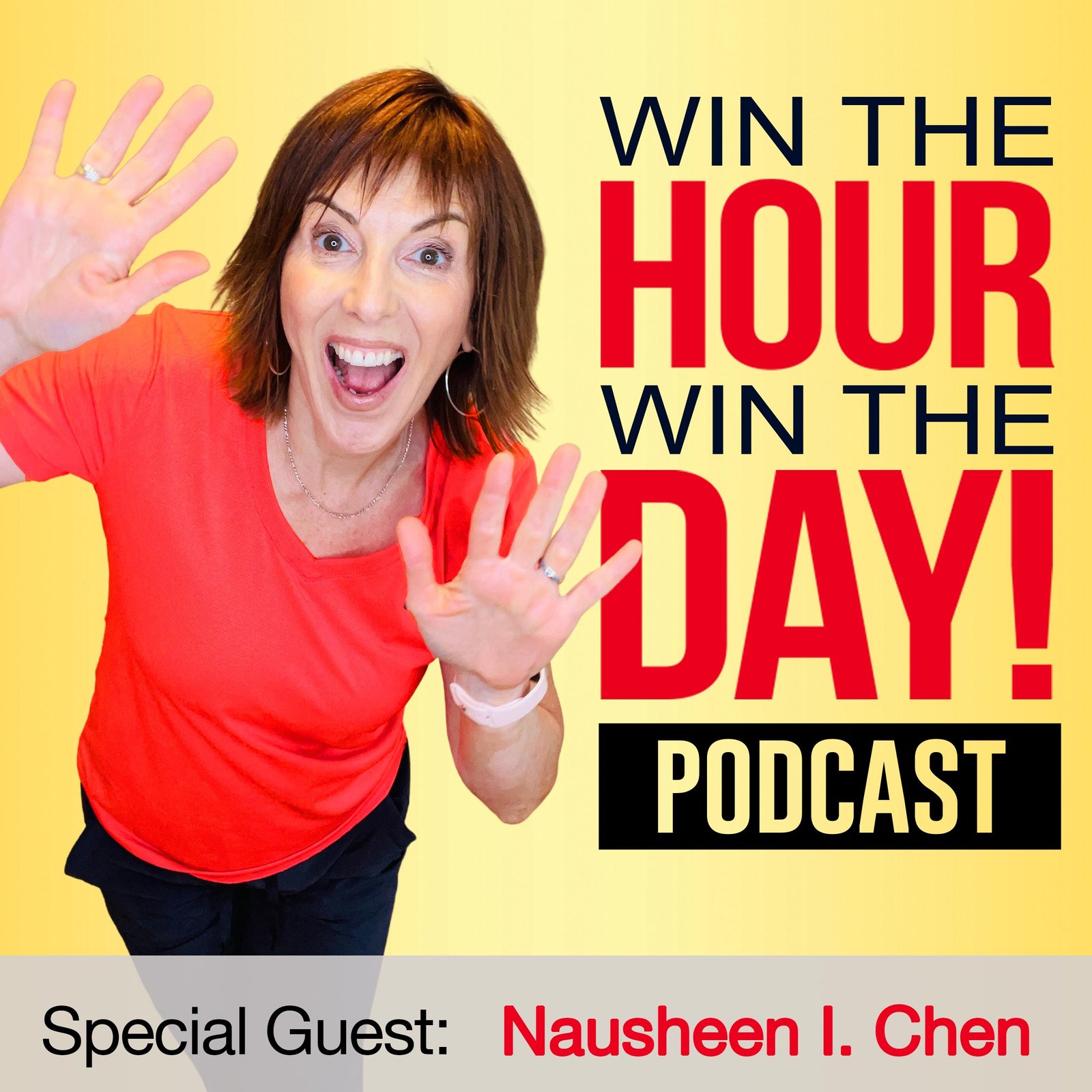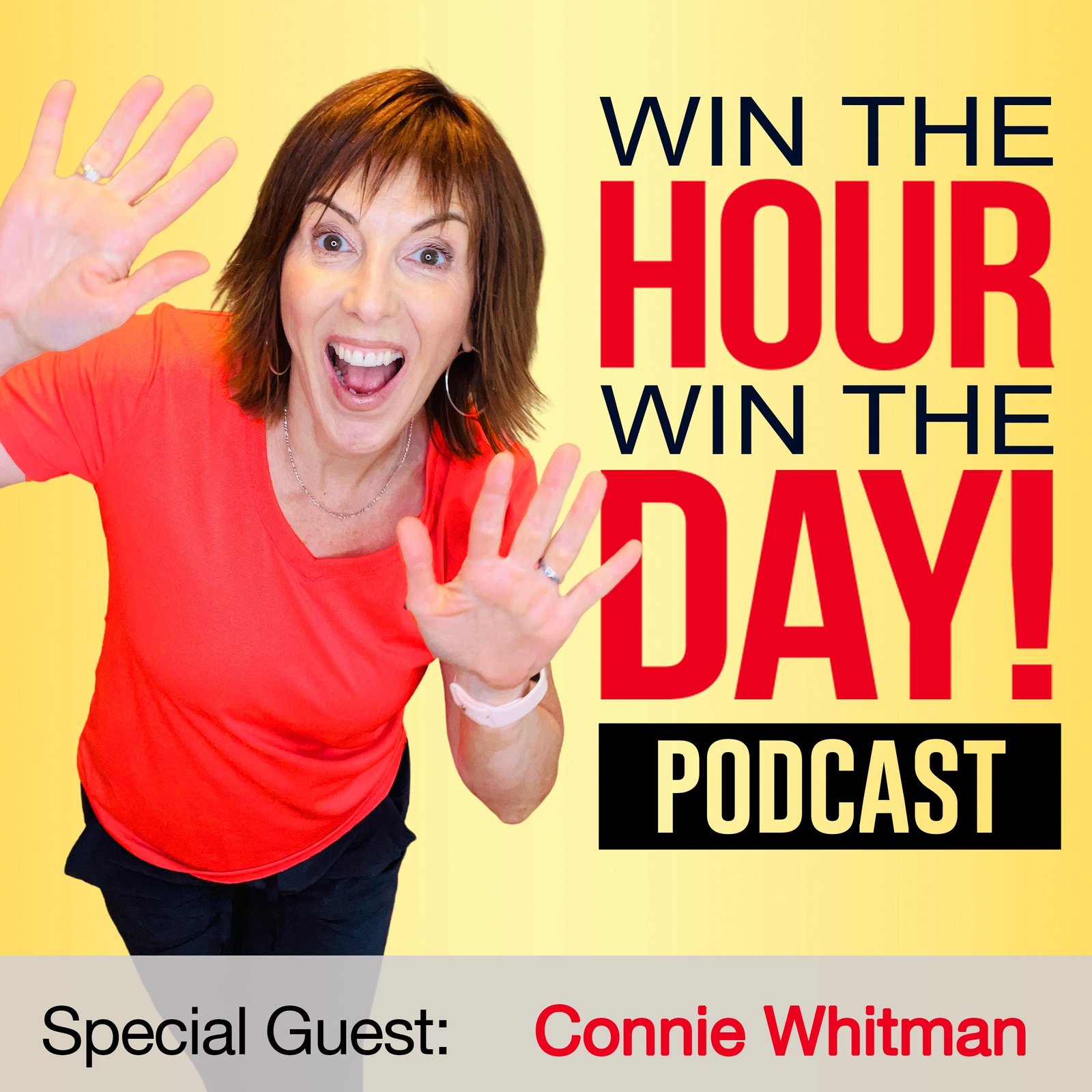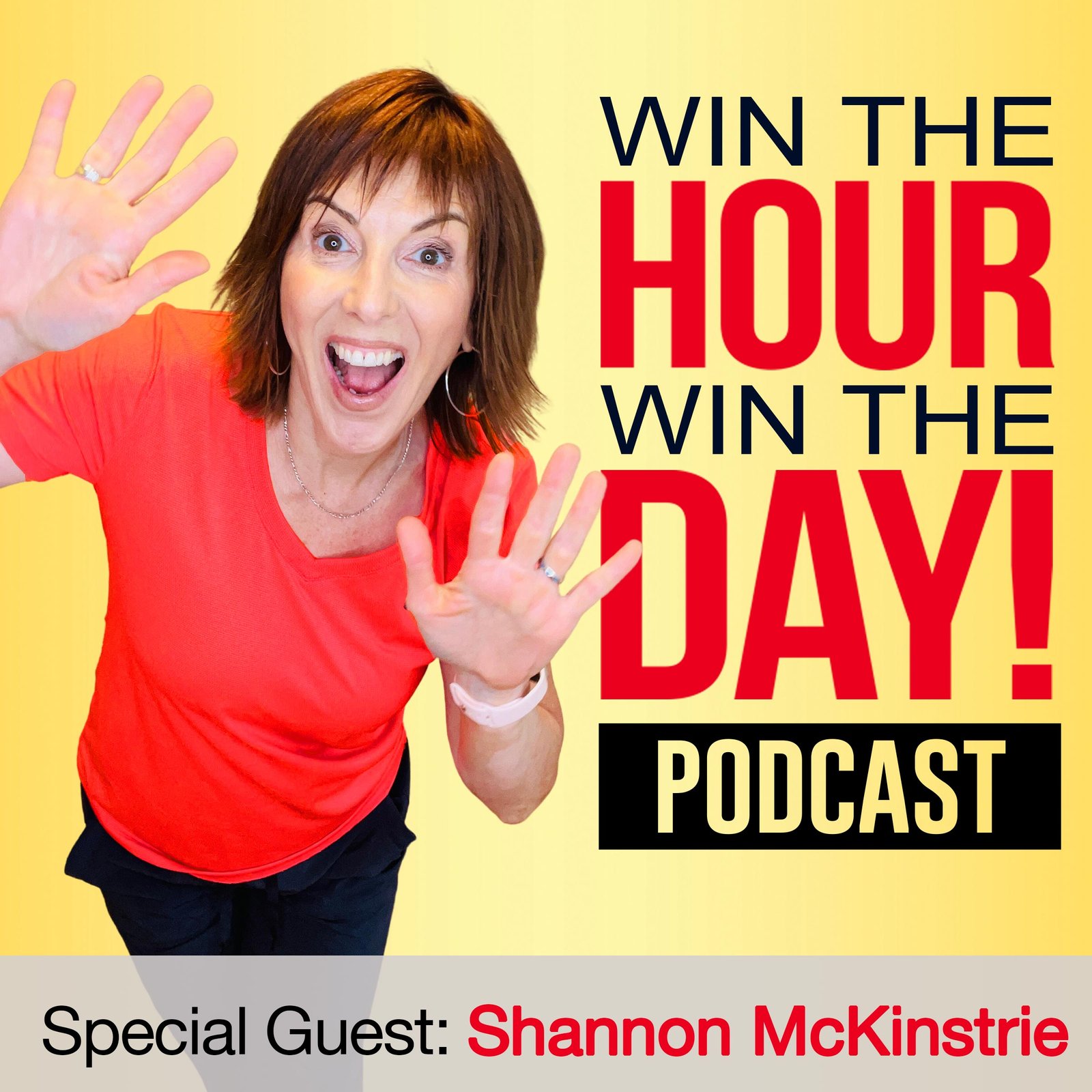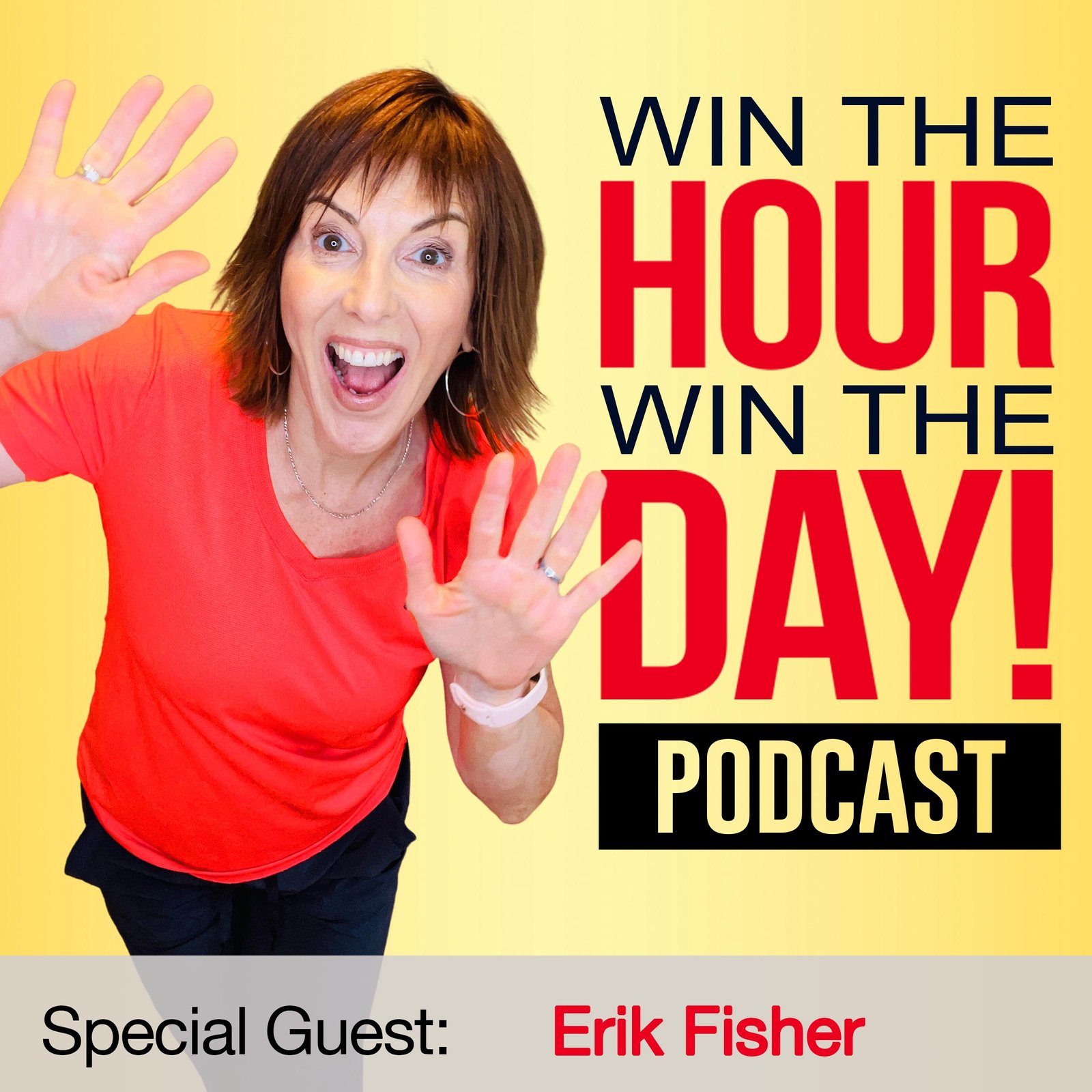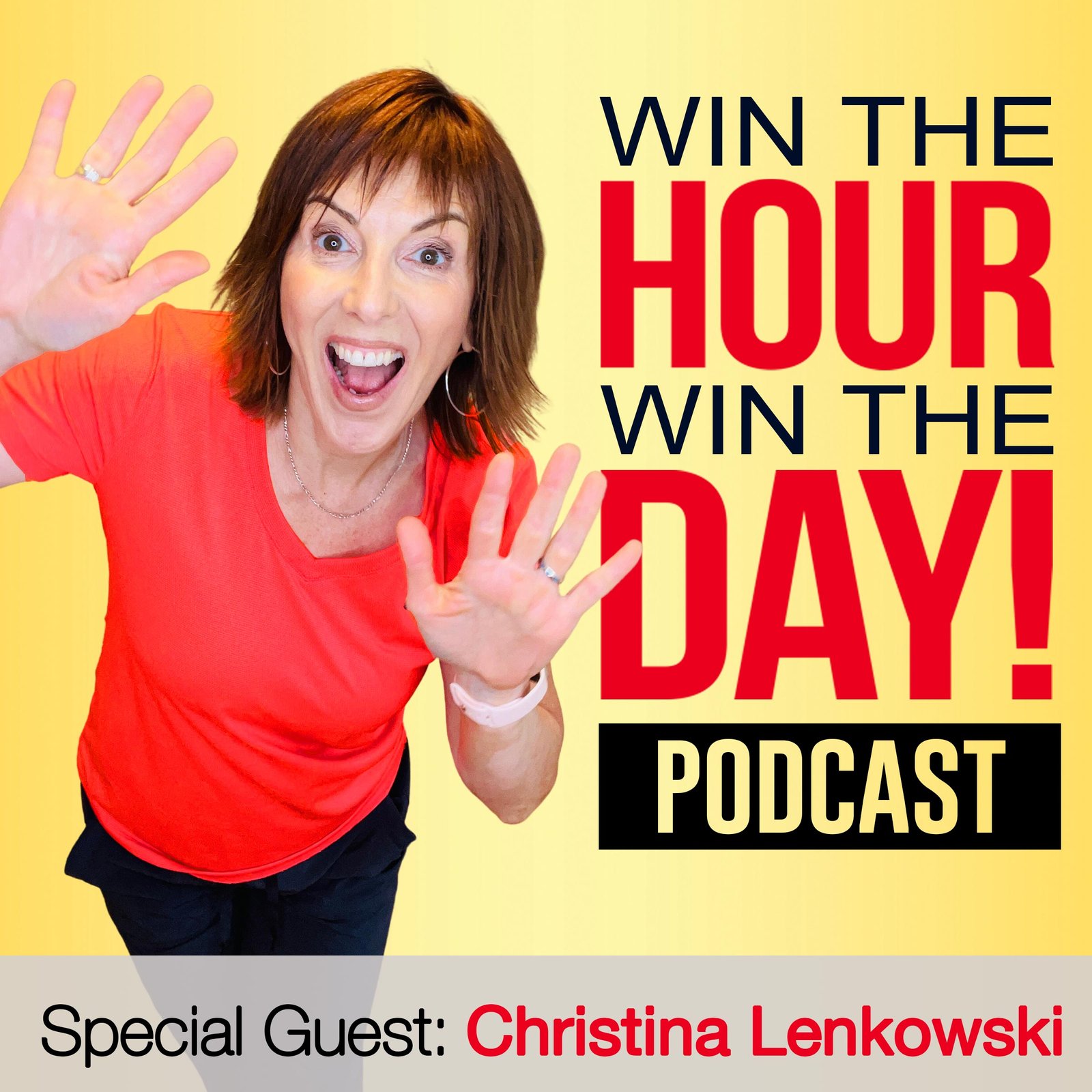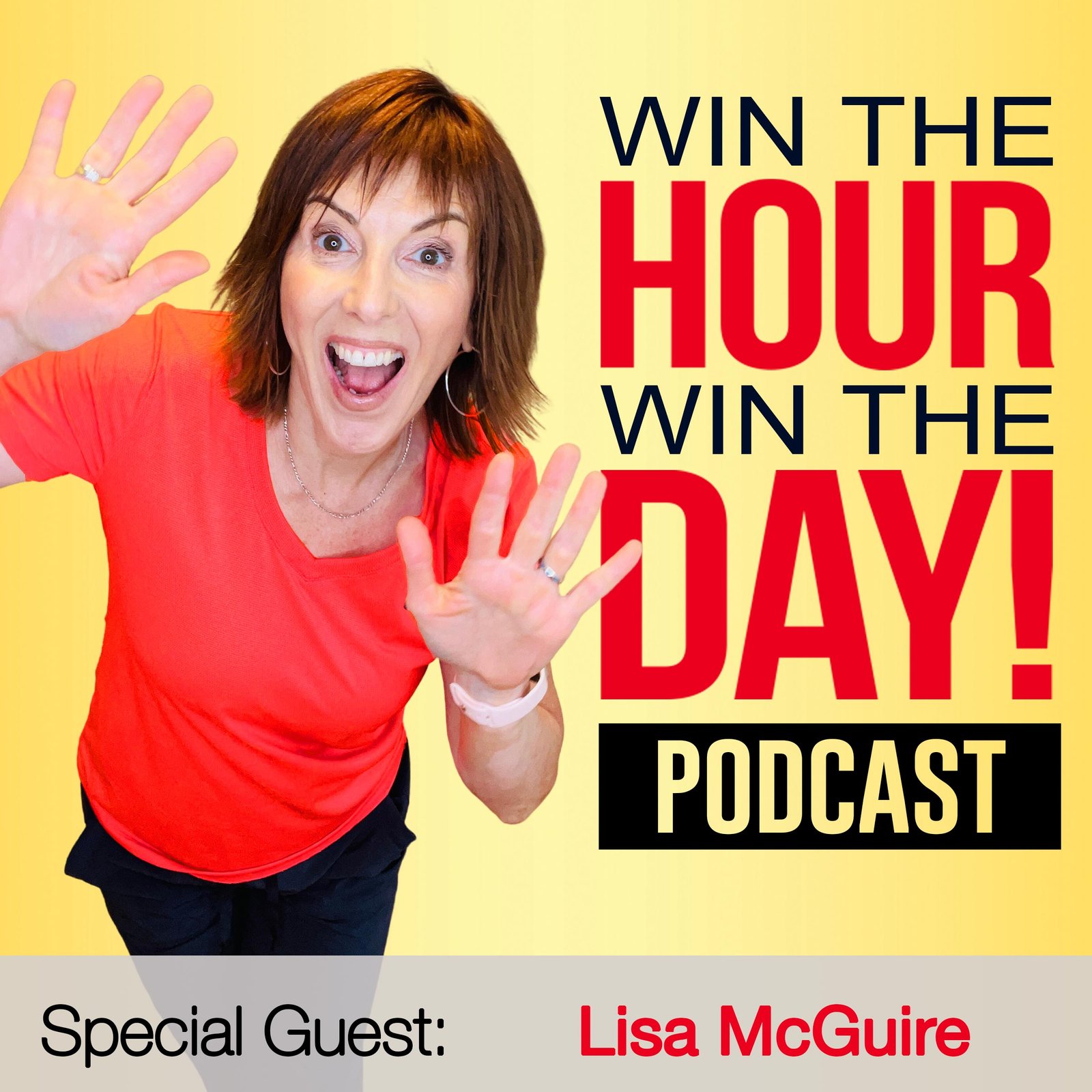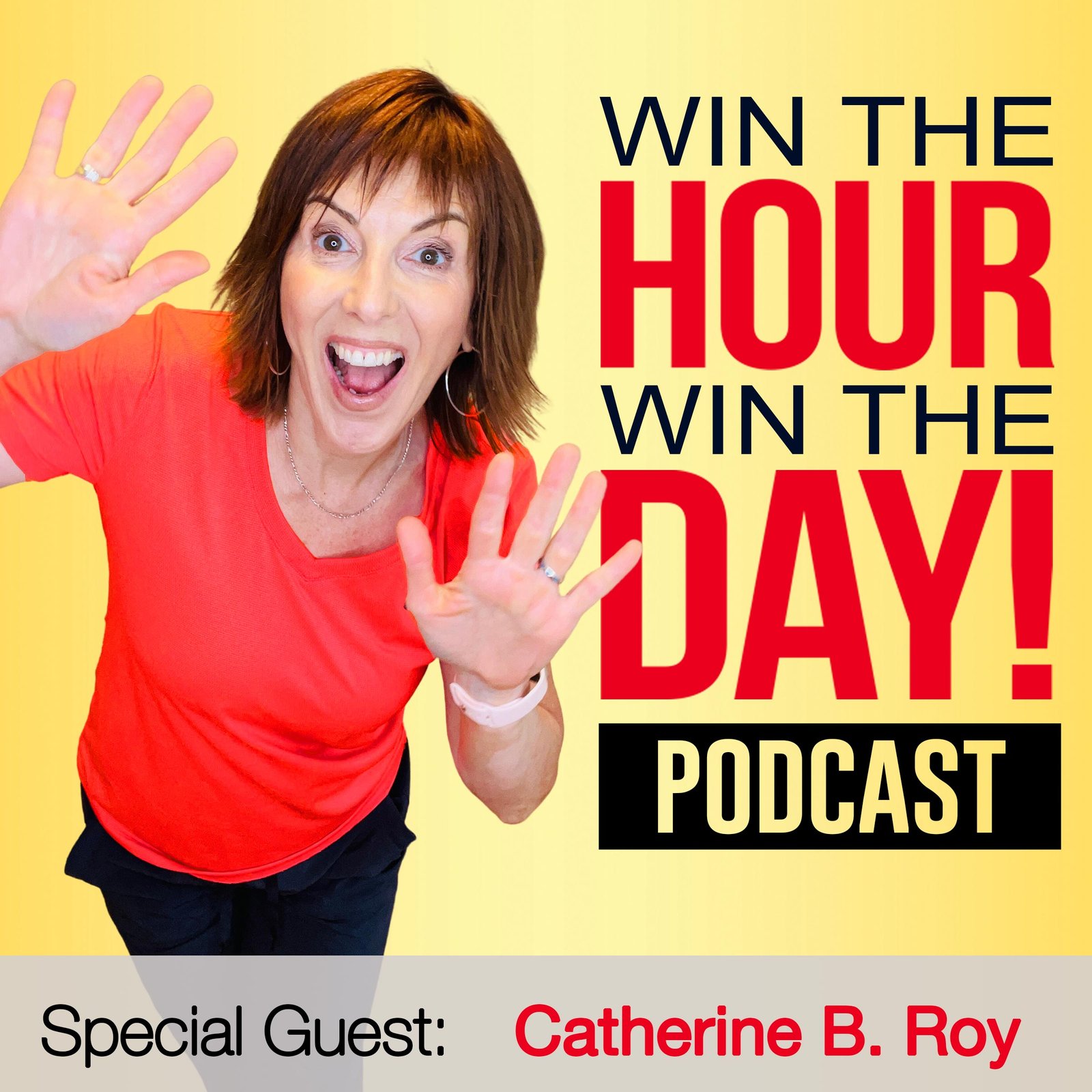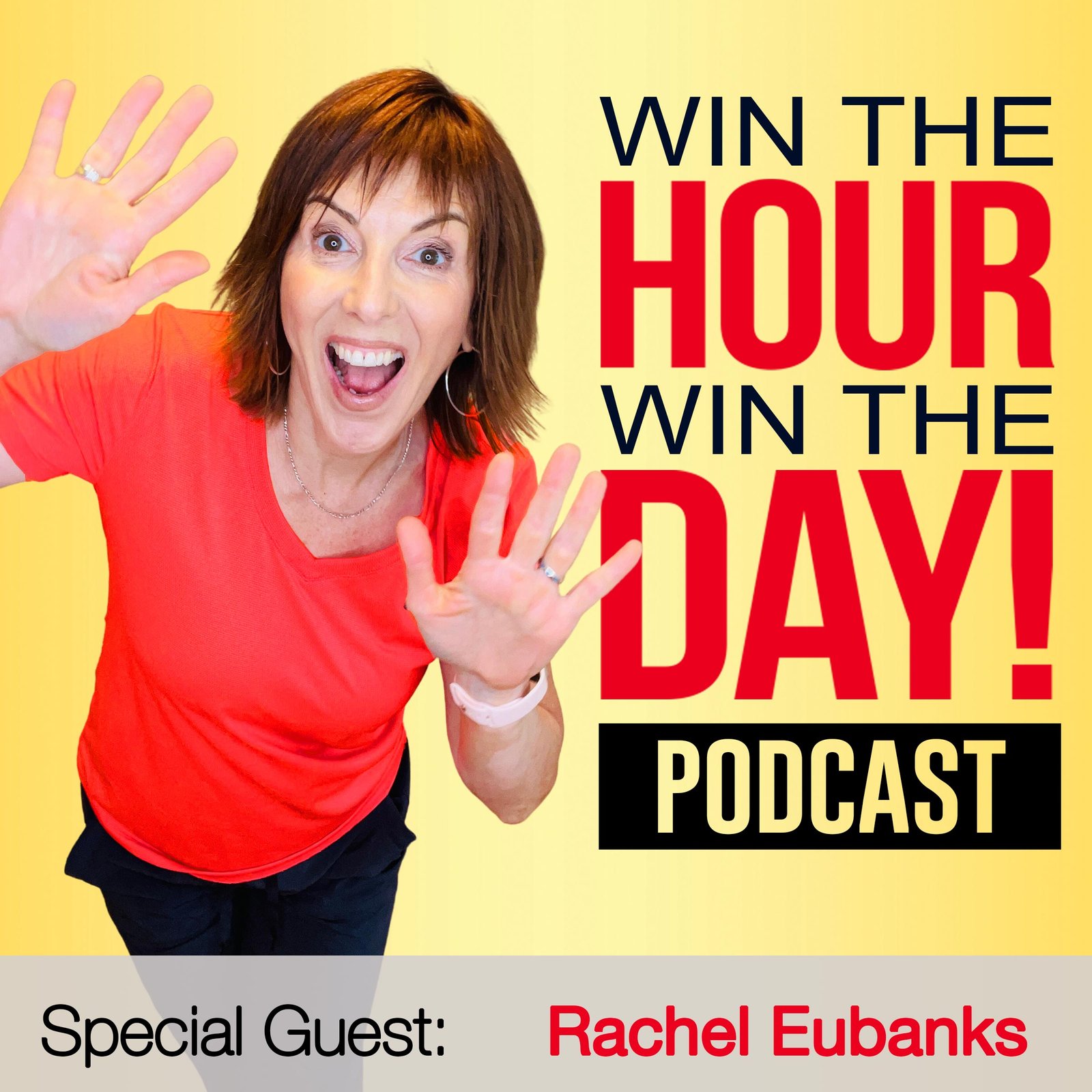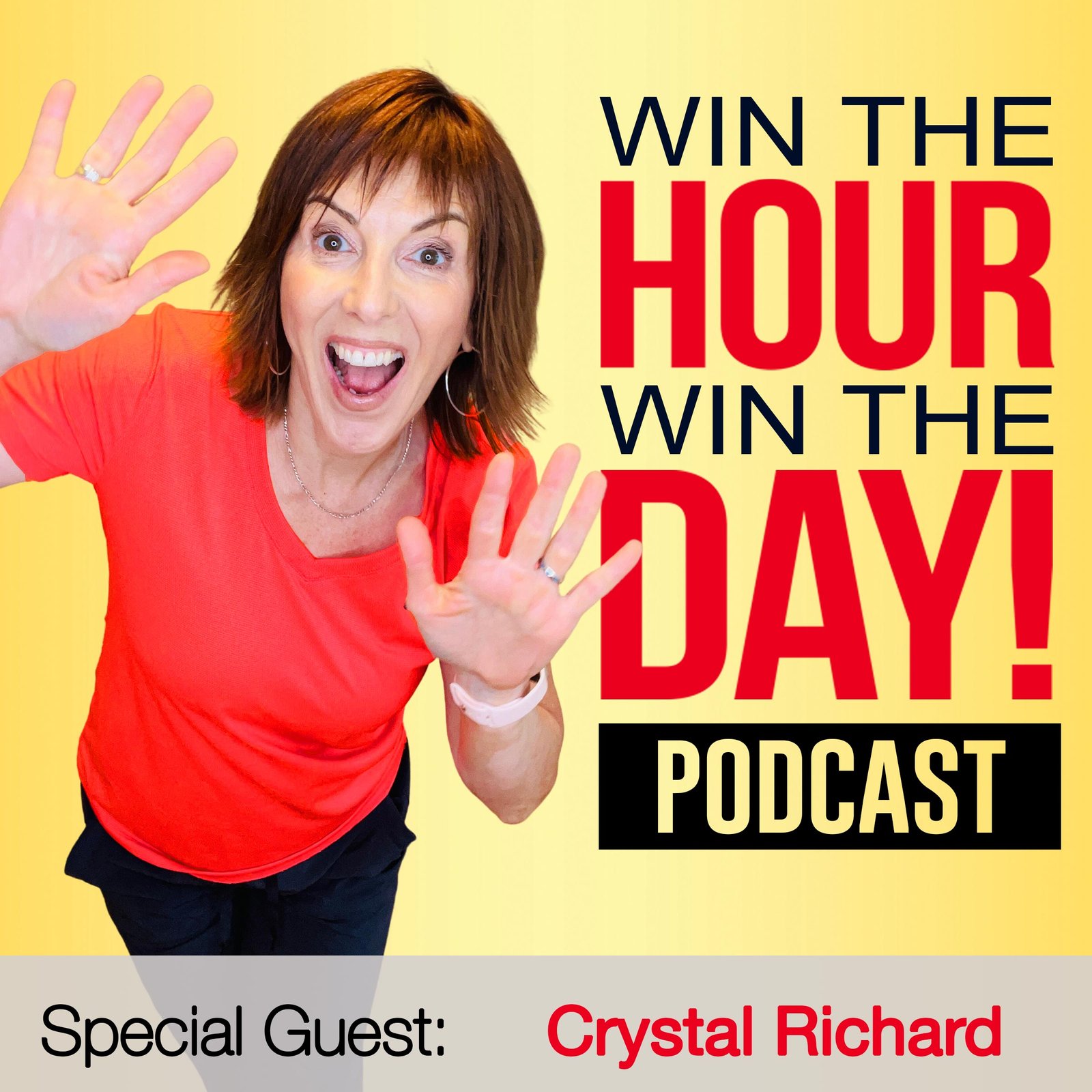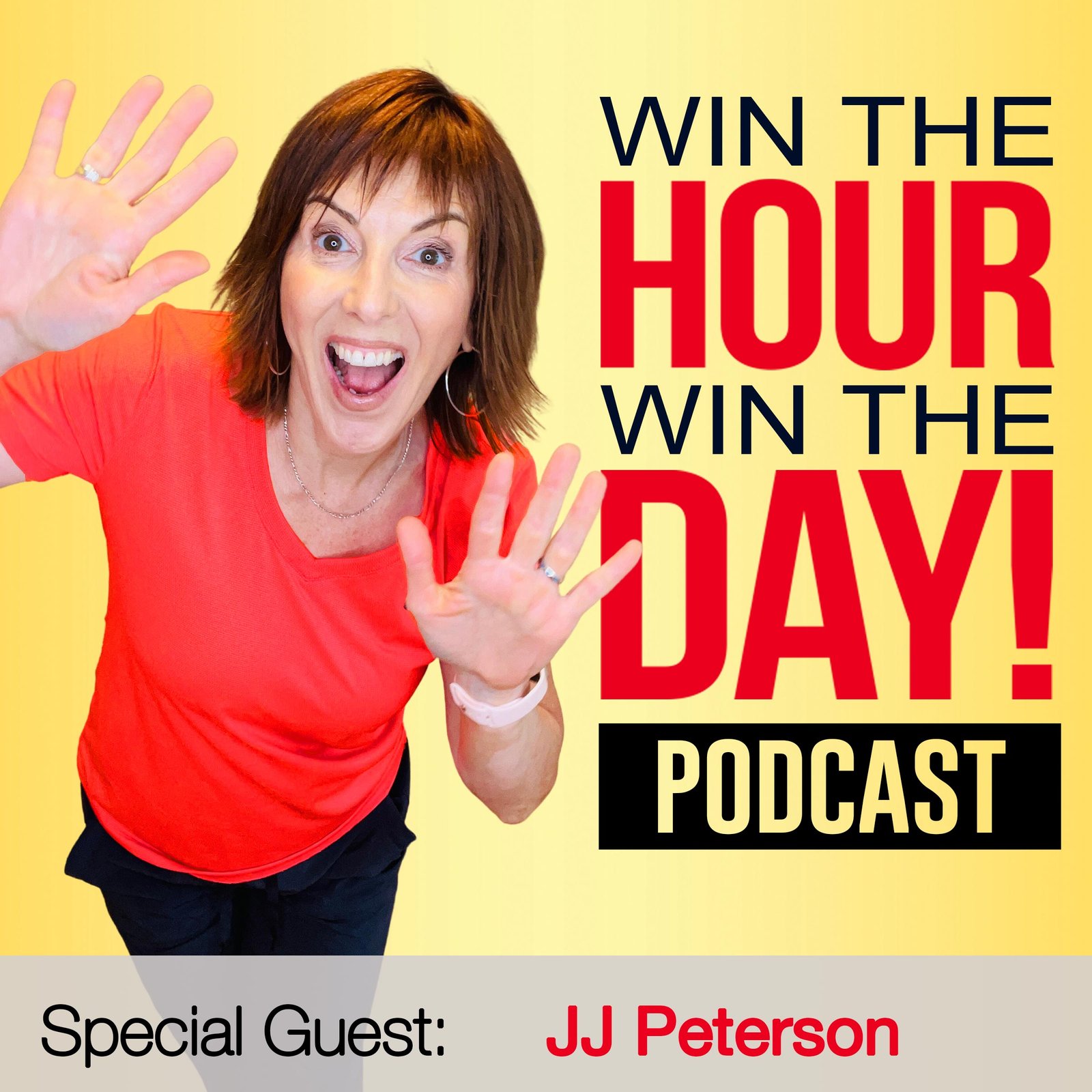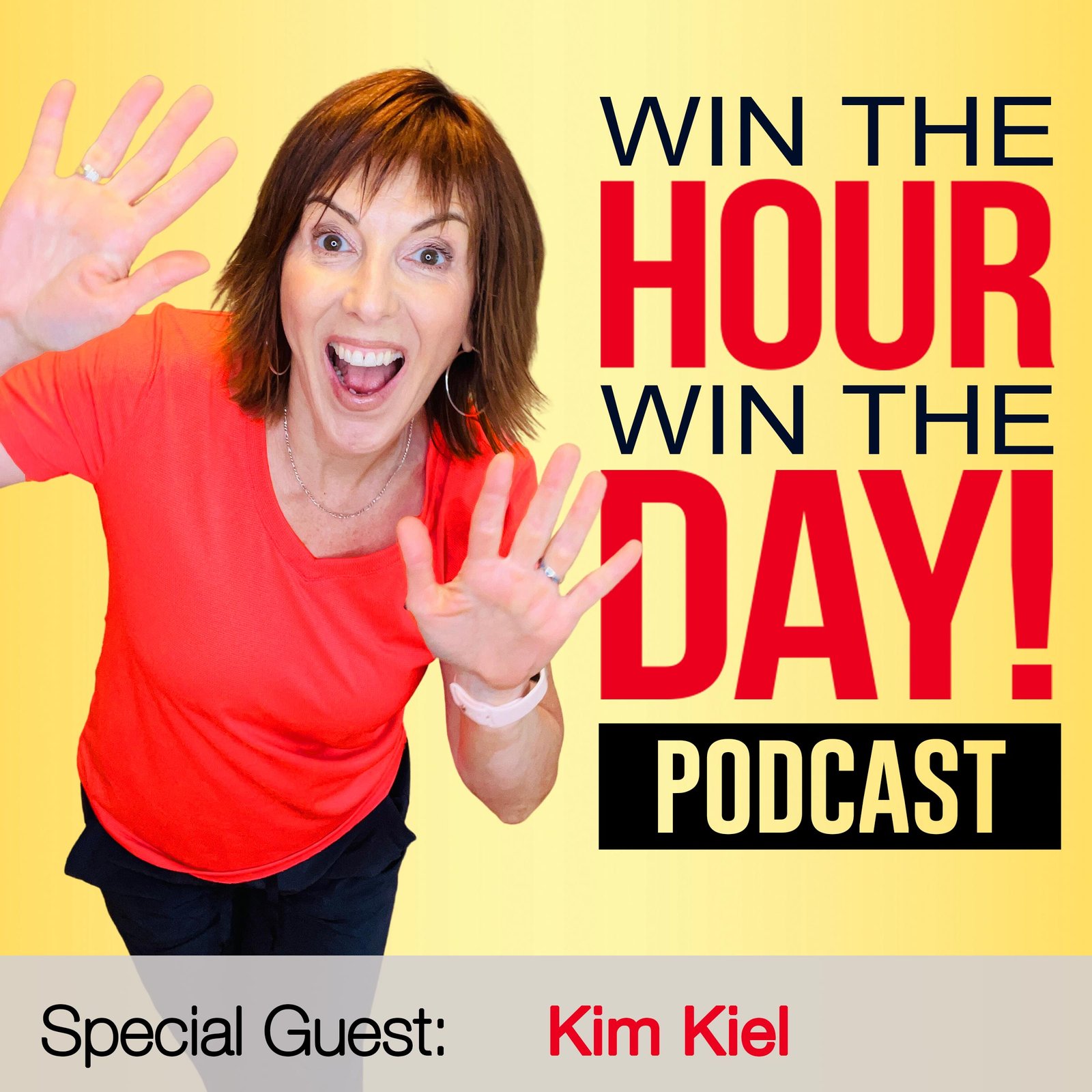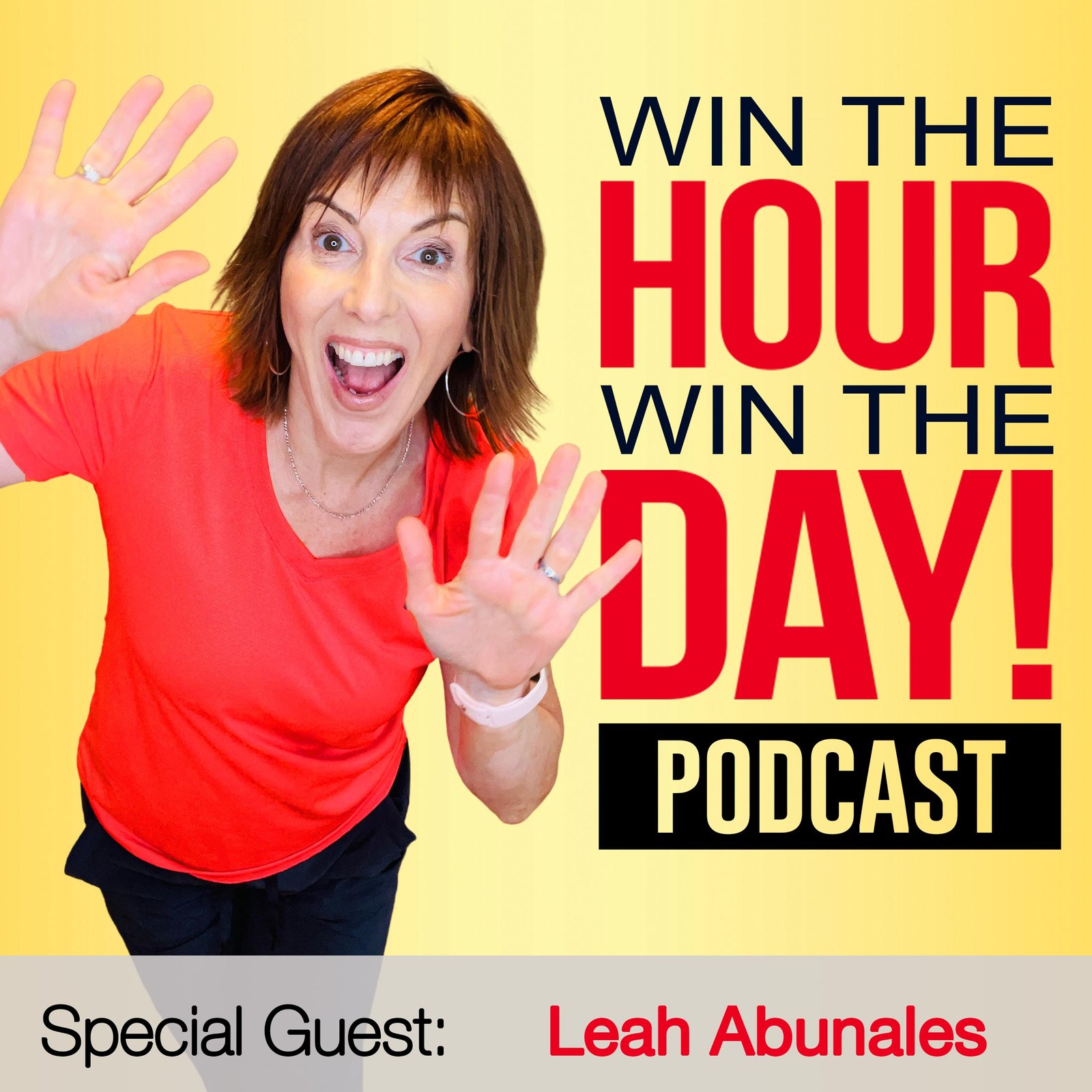Episode Summary This week’s episode of Win The Hour, Win The Day Podcast is...
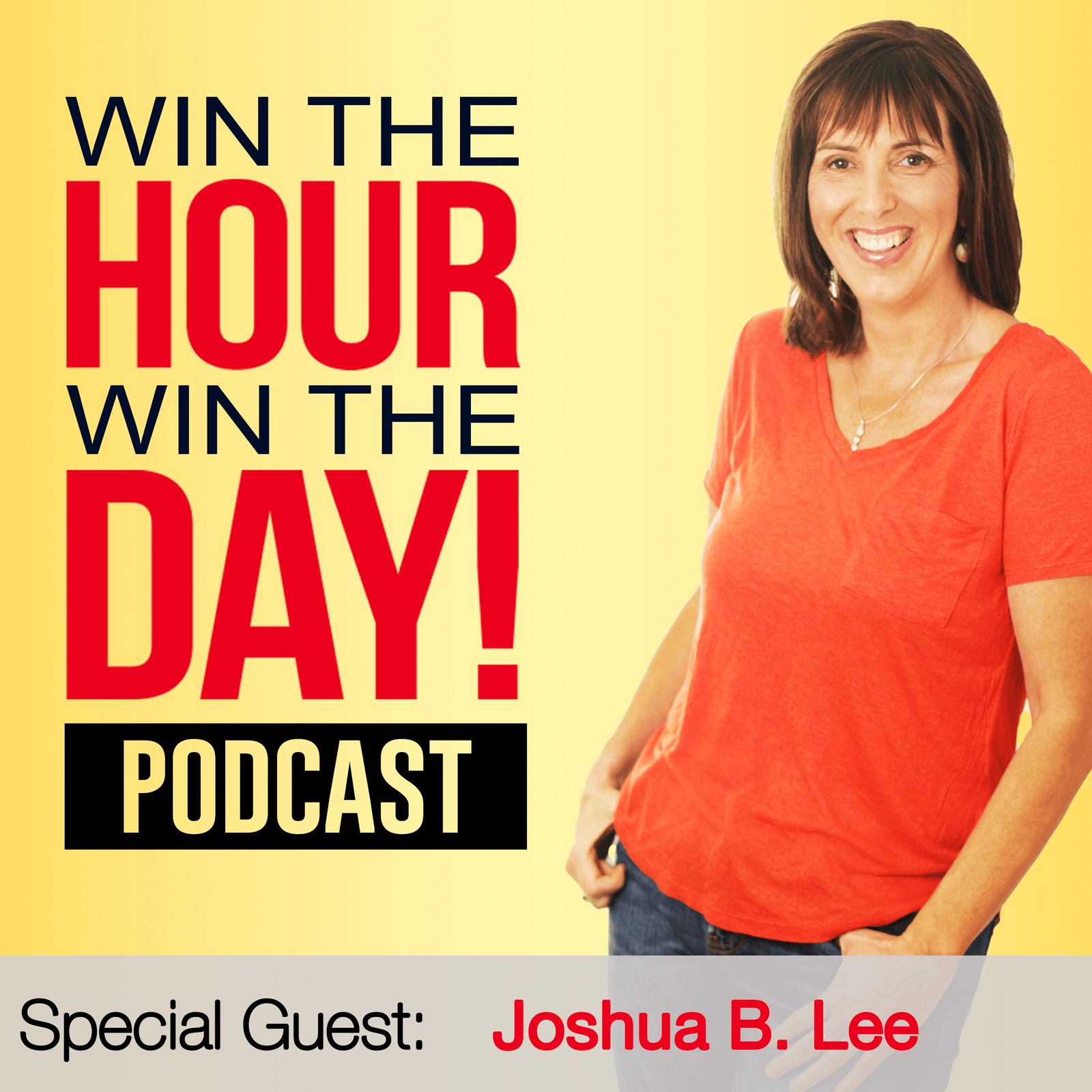
Are You Ready For Your Next Big Win?
Know your entrepreneur personality and I’ll take it from there!
Recent Podcast Episodes
Preventing Burnout with Smart Work Tools! with Kris Ward
Episode Summary This week’s episode of Win The Hour, Win The Day Podcast is...
Master Social Selling: Heidi Medina’s Strategies for Engagement
Episode Summary This week’s episode of Win The Hour, Win The Day Podcast is...
Boost Productivity and Master Storytelling! with AmondaRose Igoe
Episode Summary This week’s episode of Win The Hour, Win The Day Podcast is...
Master Video Marketing: Top Tips for Entrepreneurs with Dan Bennett
Episode Summary This week’s episode of Win The Hour, Win The Day Podcast is...
Boost Your LinkedIn Strategy with AI Tools for Enhanced Productivity! with Joe Apfelbaum
Episode Summary This week’s episode of Win The Hour, Win The Day Podcast is...
Mastering Personal Branding with NLP Techniques! with Olesija Saue
Episode Summary This week’s episode of Win The Hour, Win The Day Podcast is...
Innovative Lead Generation and Email Automation Secrets with Jennie Wright
Episode Summary This week’s episode of Win The Hour, Win The Day Podcast is...
PR Strategies for Diverse Entrepreneurial Impact! with Jennifer Singh
Episode Summary This week’s episode of Win The Hour, Win The Day Podcast is...
Convert More Clients on LinkedIn with Richard Moore
Episode Summary This week’s episode of Win The Hour, Win The Day Podcast is...
Master Business Growth on Pinterest with Meagan Williamson
Episode Summary This week’s episode of Win The Hour, Win The Day Podcast is...
24/7 Sales Boost: Video Marketing Secrets with Alex Sheridan
Episode Summary This week’s episode of Win The Hour, Win The Day Podcast is...
Master Public Speaking Tips with Nausheen Chen!
Episode Summary This week’s episode of Win The Hour, Win The Day Podcast is...
Beating The Burnout With Connie Whitman’s Success Story
Episode Summary This week’s episode of Win The Hour, Win The Day Podcast interviews,...
Craft Your Social Media Content Strategy With Shannon McKinstrie
Episode Summary This week’s episode of Win The Hour, Win The Day Podcast is...
Boost Your Productivity with AI Tools: A Deep Dive with Erik Fisher
Episode Summary This week’s episode of Win The Hour, Win The Day Podcast is...
Boost Visibility: Repurpose Content and Leverage Podcasts With Christina Lenkowski
Episode Summary This week’s episode of Win The Hour, Win The Day Podcast is...
Master Personal Branding & Storytelling with Lisa McGuire
Episode Summary This week’s episode of Win The Hour, Win The Day Podcast is...
Boost Business on LinkedIn with Catherine B. Roy’s Strategies
Episode Summary This week’s episode of Win The Hour, Win The Day Podcast is...
Scale Your Business: Optimizing Virtual Assistant Services with Kris Ward & Rachel Eubanks
Episode Summary This week’s episode of Win The Hour, Win The Day Podcast is...
Affordable PR Mastery: Crystal Richard Unveils Modern Techniques
Episode Summary This week’s episode of Win The Hour, Win The Day Podcast is...
Mastering Business Storytelling with JJ Peterson’s Guide
Episode Summary This week’s episode of Win The Hour, Win The Day Podcast is...
Revamp Your About Page: Guide to Personal Branding
Episode Summary This week’s episode of Win The Hour, Win The Day Podcast is...
LinkedIn Mastery and Video Marketing Secrets with Alex Sheridan
Episode Summary This week’s episode of Win The Hour, Win The Day Podcast interviews,...
The Systems and Processes Playbook: Insider Secrets to Streamlining Your Small Business with Leah Abunales
Episode Summary This week’s episode of Win The Hour, Win The Day Podcast interviews,...
How To Leverage Your LinkedIn Connections with Joshua B. Lee
Episode Summary
Joshua B. Lee calls himself the Dopamine Dealer of LinkedIn and now we know why!!! Listen in as he gives us a whole new perspective on LinkedIn and yes- gives us a dopamine hit of excitement!
Learn:
– what you’ve been doing wrong on LinkedIn (and it’s not what you think)
-how easy it is to create meaningful relationships on LinkedIn that lead to sales.
-why you should use LinkedIn to create amazing funnels for your business
And so much more!
You can find Joshua B. Lee at:
Website: https://standoutauthority.com/
Email: joshua@standoutauthority.com
LinkedIn: https://www.linkedin.com/in/joshuablee/
Facebook: https://www.facebook.com/joshuabyronlee/
Win The Hour Win The Day
https://winthehourwintheday.com
Joshua Lee Podcast
[00:00:15]Kris Ward: Hey, everyone. Welcome to another episode of Win The Hour, Win The Day and today we have Joshua B. Lee in the house. Now he is known as the dopamine dealer of LinkedIn. So let’s talk to the dealer and let’s see how he can really help us up our game on LinkedIn. Josh, welcome to the show.
[00:00:37]Joshua Lee: Kris, I appreciate it, really looking for the conversation today. And I just can’t wait to get into all the things that we’ll have fun on.
[00:00:45]Kris Ward: Me too. And you know what, I personally feel that LinkedIn has had a new breath, in the last little while, and it’s really becoming much more robust and, I’m just getting a lot more out of it than I had… I looked, I’ve been on it a really long time.
[00:00:59] Like, I don’t know, 12 plus years, but in the beginning I was just there. You should be there. Like I did it cause I was supposed to, but now I’m getting something out of it more and more in the last while than I had before. So why didn’t you talk to us about why quickly, why should we be there and how can we up our game?
[00:01:17]Joshua Lee: Yeah, Kris, I mean, you know, there’s so many different things. Like you’re not the only one, right? Like so many people are like, well, I have LinkedIn because I was told to. That’s professional. That’s we show our resume there, but it’s shifted so much more to that because I mean, as things have happened, I mean, a couple of years ago, Microsoft purchased LinkedIn for one of their largest cash purchases ever over $24.6 billion cash.
[00:01:40] And that was a big shift for them because now they want to be able to go in, not only does LinkedIn. I want to be able to connect other human beings, but that’s what, Microsoft and Satya Nadella over there want to be able to do as well, too. Right. It’s being able to shift this perspective and they’ve worked really hard to be able to do that.
[00:01:58] There’s so many different things that you’re seeing change from being able to connect, being able to go through. And I mean, honestly, this is why I spend so much time allowing people to understand with COVID that just happened. That we continue to go through, like we miss that human element and people are wanting to be able to human level connection and the opportunity to be able to do that on LinkedIn is so powerful because they truly make it in a way that only you as another human being on that platform can connect. They’re not letting you get messages from other companies. So…
[00:02:27]Kris Ward: Yeah and for me, I went online many moons ago, like long before anybody else I was using Skype before. I think zoom was invented.. yeah, I don’t know if school zoom wasn’t invented or it just wasn’t commonplace. But I realized really quickly that even if I had an appointment down the street, you had to, even if it’s 10 minutes down the street, you had allow for at least a half hour because you had a park and you want it to be on time or early or whatever.
[00:02:51] Right. And whereas you could have eight appointments back to back on the computer. So I gave up really, first of all, a lot of my clients are in Australia, England around the world. Obviously that’s a better business plan, but even when they were many years ago, local geography, that sitting there at a breakfast and networking, it was just always such an effort to me.
[00:03:11] And I just, but now I think what, you know, LinkedIn, if we use this effectively, this is really an opportunity to have meaningful connections and network effectively. So tell us, let’s dive in. We don’t want to waste any time. Tell us, what should we be doing? Where do we start? Where are we missing the boat? What’s what?
[00:03:30]Joshua Lee: Well, Kris, here’s the whole thing, right? Like you said, it’s a great place to network. The problem is that so many who have heard the wrong things, they kind of go through and they’ve been taught like, well, the thing is old school, right? Well, I’m going to send a thousand messages out. And if I get that one person to connect with me and get that one sale, they’re like, yay.
[00:03:46] I got the sale. Actually, no. This is what upsets so many people about LinkedIn. What you essentially did was this piss off 999 people. There is a better way to do it. No, none of us like to get, ‘Hey, Kris, I see you’re online. Me too.’ And then you connect and then they pitch you, right? I mean, we’ve all had it. I mean, I’ve been on stage talking about LinkedIn and I get this whole message.
‘Hey, Josh’, on LinkedIn minds. Joshua B is my first name. So I know I can pick up automation really quickly. They’re like, ‘Hey, Josh will be ever thought about using LinkedIn to get leads?’ I’m like, oh no, probably not. I’ve never thought about that, but that’s what it is.
[00:04:22] Right. We’ve gotta be able to understand how to start a conversation that turns into a relationship that builds opportunity and to be able to do that, we’ve got to be making sure that we’re making. The people that we’re reaching out to, there’s an effort, right? Don’t just spam a thousand people. Let’s make them advocates and treat them like human beings.
[00:04:43]Kris Ward: I’m pretty vicious about that now. If I get that, I just disconnect from them right away. And my other equal. Yeah. And the other equal thing, which I don’t get so much on LinkedIn because they do, they get more aggressive, but at least it’s a bigger blurb they’re copying and pasting, but on Facebook, my pet peeve is ‘how are you?’
[00:04:59] What the hell? I don’t know you, how are you? That is, I don’t even like that in general conversation. It’s just a filler. Right. So, okay. So you know, when you’re being blasted and that’s a really good point, Josh is like, okay, that’s not a technique. It’s not a numbers game. It’s a numbers game to annoy people. Got it. All right. Yeah.
[00:05:19]Joshua Lee: So let’s look at that perspective, right? Because there’s a better way to be able do it. The way that I actually teach and work with our clients is honestly just the same things my mom taught me how to be able to treat other human beings and this doing it online. Because have you seen the movie ‘Social Dilemma’ came out on Netflix?
[00:05:36] Yeah. So, I mean, they talked about how they’ve conditioned us over the years. Right? They’ve been conditioning us for 20 years. These social platforms, truly to like comment, share posts, like comment, share posts, right. We’re in this pattern. Yeah. I mean, as human beings, we need to be able to have patterns interrupt us, to be able to get, to be heard, to be seen.
[00:05:55] Right. And I mean, on social media, the way that I look at it is if I’m going to be able to connect someone when I hate cold call, I hate cold email. Just hate it. If someone calls me, they don’t say hello in the first second, I know I’m about to get, is this Joshua B. Lee or whatever it might be trying to be able to call them.
[00:06:11] They’re probably going to try and sell me on. Well, that’s the same thing on LinkedIn, right? How do I actually, not just cold pitch somebody, we have to be able to look for these triggers that people do. On LinkedIn, we’ve got people at, she can look at our profile. We can see who looks at her profile on LinkedIn, on any platform, really the things that I’m sharing about. You don’t need platform.
[00:06:34] We just use, in leverage, the platform of LinkedIn to be able to do this for our clients. So when engaging on your content, these are triggers, right? We take these for granted, right? That comment, like share posts, comment, like share posts, how I would suggest you being able to do it as engage with people that engage with you, right.
[00:06:51] That they’re showing interest with you are showing opportunity. So why don’t we go through and appreciate someone for something they’ve never been appreciated for? In this world, post-COVID, pre-COVID. Whenever we were in COVID, you know, we really want to be able to kind of look at… these little things, like I took for granted, not having to wear a mask all the time, being able to go out with my wife and honestly.
[00:07:15] The biggest thing I took for granted was my kids actually going to school, not just the other room and being. Online, we take for granted, someone looking at our profile, engaging in our content, reach out and say, ‘Hey, Kris, I saw you checked out my profile. Just want to reach out and say ‘Thank You”,
[00:07:31]Kris Ward: Oh, okay. Hold on. Hold on here. That is really great. So you say thank you because so often what people I’ve done, I’ve heard other people say, well, you checked out my profile. Okay. So, boom, boom, boom, boom. How could I help you? Boom, boom, boom, boom. You, you want this? Like, oh, here’s some links right.
[00:07:50]Joshua Lee: No. I just wanted to reach out and say, thank you. Too often we don’t appreciate little things. We connect with you and find out what pushed you to check me out. Right. We’re just starting a conversation.
[00:07:59]Kris Ward: Okay. So hold on here. That’s really, I want to unpack that. That’s pretty powerful. So you’re saying thank you. I just want to reach out and see what made you check out my profile?
[00:08:10] So what we’re doing is we still are looking to get that connection and potentially a conversation, but we’re doing it in a much more socially appropriate, less ‘don’t put your backup kind of way.’
[00:08:24]Joshua Lee: A human way. Right? And this is where most people… well, I don’t worry about the algorithm. I’m not thinking about LinkedIn’s algorithm, Facebook or Instagram. I’m worrying about the one hour that really matters that doesn’t change every six months and only evolves over time. It’s the human algorithm. Right? And if we can connect on that, we don’t have to learn the next trick or next hack
[00:08:44] every single time, something changes. So when you start with appreciation, right? It creates someone a stop gap. Like they take for granted looking at your profile or, ‘Hey Kris, I saw you like my recent posts. I just want to reach out and say, thank you for engaging on my post. Love to find out what pushed you to, you know, what you… what you enjoyed about the post, right.’
[00:09:01] Again, I’m saying, thank you. I’m starting with that level of appreciation where people go in, they like something, they move on. Well, thank you for some that they took for granted, it makes us stop. It makes us pause it. Now we can actually hear and listen to what’s happening. And so that’s what we want to bring people present to the conversation.
[00:09:20] But this is where most people mess up. They got the connection. Right? Next thing. ‘Hey, Kris, let me, blah blah you know.’ My mom, she always taught me to be able to, when you meet someone, give them a compliment. On LinkedIn, the way I look at a compliment is by giving someone an endorsement. So once they’ve engaged on our content or our posts on our profile.
[00:09:43] So that’s the first connection. We reached out to you to connect them and thank them. Next we go in and we give them a compliment and endorsement on LinkedIn. The cool thing about this called the Dopamine Dealer, right? These are all just dopamine hits that we’re giving to someone or healing flowing to those states. LinkedIn then goes, ‘Hey, Kris, Joshua just endorsed you. Do you want to reach out?’
[00:10:06]Kris Ward: Okay, hold on, hold on. That’s pretty powerful because you know why I really, I never paid any mind to those. Like I love, I will ask for testimonials and that’s great, but I just thought the endorsements were fluff. But even if they are, or not they’re now being flagged for it. So the power is in the fact that they’ve been notified, oh, okay.
[00:10:26]Joshua Lee: Now LinkedIn’s doing the work for you. They’re saying, ‘Hey, Josh does engage you for marketing.’ Right. Whatever it might be. Now you just hit that little button. And so it’s really them starting the conversation like, oh, thanks Kris for endorsing me.
[00:10:42] Right. So they’re kind of starting the conversation. I can then go in and make it about them, right? Because this is what we’re trying to be able to… people like to be able to be those experts in their field. So in this situation, I’m going to go in and ask them a qualifying question. ‘Hey, Kris, happy to do it.’
[00:10:57] ‘Hey, quick question while I have you, right.’ This is the ability to be able to ask where they are, because most people try and sell you on where they believe you to be, and don’t meet you where you are. So if you ask them something about them, then you can provide value based on how they answer. I don’t respond to anyone.
[00:11:15] So the whole process, right? They looked at her profile. We reached out to connect. They connected, now that’s the next trigger to endorse. Once they respond to the endorsement, then I asked them a qualifying question, right? I’m not going in because we’re not like I’m going to send you 10 messages to your responder. I piss you off. I’m looking for these new triggers to keep, continue the conversation.
[00:11:36]Kris Ward: So in our case where we work with entrepreneurs. You should have a business that supports your life instead of consuming it. I believe you should be in what we call the WIN formula, 60% execution mode. Now it’s a little bit done with your WIN team and also our super toolkits.
[00:11:50] So my qualifying question, would it be in the lane of, ‘Hey. Are you like so many of the entrepreneurs I work with, or you’ve been doing this five, six years at minimum and you’re still grinding out and thought you wouldn’t be at this point, or is that still we’re sliding into sales?’
[00:12:07]Joshua Lee: It’s a little too much. So you want to ask… That’s more around the mindset, right? Mindset questions are the most powerful. So, you know, I’ve been blessed to work with people like Joe Polish and Dan Sullivan with strategic coach. And one of the most powerful questions that we developed for them was. We said, thank you.
[00:12:28] I’m happy to offer… There was a quick question while I have you, do you consider yourself an entrepreneur or a business owner with an entrepreneurial mindset? Because it’s making someone think, but it’s also giving us a, A, B and a silent C answer. Because someone go, well, I’m an entrepreneur. Cool that tells me either they’re early on in their career starting out, or if they consider themselves an entrepreneur to be doing it for too long, they probably close to burnout because we know we all can’t be entrepreneurs our entire life.
[00:12:55] That’s 24/7 work. If they say business owners with an entrepreneur mindset, well, they probably see themselves they’ve got a couple of.. they’ve got employees, they’ve been doing this for a while. They’re going through, they see themselves farther and there’s a different mindset. Or I can get that silent answer.
[00:13:11] See Kris, I work for somebody else. And what guys liked that when we were doing those things, that was the amazing thing, because I truly believe in also not just leading with value, but leaving with value, even if they’re not your client. With Dan, we helped him launch his book with Benjamin Hardy, who not, how, which is a remake of his original book.
[00:13:32] And so it was like, oh, that’s amazing. I’d love to be able to offer you as so great to be able to where you’re at in your career. I’d love to be able to offer you my book. It was free plus shipping. Okay. Right. So now you’re always leaving with value at the same time.
[00:13:45]Kris Ward: So you don’t think that, ‘Hey, do you consider yourself an entrepreneur or business owner..’ that doesn’t sound and I’m not judging you, please I’m understanding the process.
[00:13:53] Right? Because I did think the angle I gave you was too much. Do you not think that looks like. Like a little bit of a hook, almost like, do you believe in the environment? Do you know what I mean? Like, how is that question received? Obviously it’s received well, because you’re still using it, but they don’t see it as a thing?
[00:14:10]Joshua Lee: Entrepreneurs rarely see themselves. They don’t consider the different… a lot of times, most entrepreneurs don’t see the business owner with entrepreneurial mindset versus entrepreneur. And sometimes they’ll ask the question, ‘Hey, wow. What’s the difference?’ Right? They want to be able to understand. And what you’re trying to be able to do is understand how…
[00:14:27] I always say too, like, ‘Hey, we always love to leave with value’, right. Or I always like to understand who I’m connecting with and leave with mindset. Right? ‘Where do you see yourself?’ Again, making them, like, you can ask so many different questions, but you won’t understand where they are and allow them to be able to respond.
Like if they don’t respond. We’re not giving them any, we’re not following up them out. Like we’re letting them lead the conversation. Right.
[00:14:54]Kris Ward: So that’s a great example, but we could use anything as long as we’re going from the mindset perspective.
[00:15:00]Joshua Lee: And you just don’t want to ask yes or no questions. I mean, like yes or no questions and in a stop of a conversation.
Cause I want to be able to start a conversation that turns into a relationship that creates opportunities. And so if with that, you know, it was, there were different things, Kris, like if they said entrepreneur, okay, we could offer a PDF. We could offer an evergreen, a webinar to be able to educate themselves.
[00:15:23] If they said business owner, we can get them on a call. ‘Hey, that’s amazing. I’d love to understand, you know, how, why you see yourself there. Can you jump on a call with me for 15 minutes and tell me more,’ right. We did this often. I mean, with those $10,000 programs. You’ll be amazed at the end of it.
[00:15:39] Wow. Thank you so much. We really appreciated just the conversation because most people go straight into the pitch and they’re not making it about that person because they’re in a flow mindset. Keeping them in those dopamine hits there. It’s an open conversation. I’m not waiting for the sale. They’re not waiting for the sale. You’re not selling anyone. You’re providing value based on how they answer.
[00:16:00]Kris Ward: Okay, so I’m thinking four or five steps ahead. Bear with me, slow myself down. So when we get them and we focusing on the mindset and if they say, okay, whatever, entrepreneur, or depending which path you want.
[00:16:14] Yeah. That’s just one question, but we’re using his example. So then you say, ‘Oh… did you want to hop on a quick call to see…’ whatever you worded it much more eloquently. Well the top, ‘I’d love to hear more of the top on a quick call, or would you like to hop on a quick call’ that’s one option, or then let’s say you had a book that does subscribe to that mindset.
[00:16:36] Would you send them the book? Because (a.) It’s a free thing and you’re engaging them, but (b) then they’re going to read the book, like you’re slowing down the engagement process because now they think I have to go off and read that book. Like, how do you move through this quickly, or is quickly the wrong word?
[00:16:51]Joshua Lee: Well, I mean, this is the whole piece, right? We’re doing these with our clients. We’re doing these conversations because it’s organic. So it’s a slow, like we’re not doing paid where we’re turning clients over. Most of our clients have products or services that start around $5,000 and go up to 50.
[00:17:05] So they’re not trying to get thousands of leads and that’s not what I do. I’m not teaching people how to do lead generation. I’m teaching them how to actually do business development, how to build a relationship and, really connect with their audience. Because what I want to be able to do is if they say business owner, that’s amazing.
[00:17:22] I’d love to be able to connect with you or. Wow. I love working with people just like you, that are business owners that had that type of mindset. I’d love to invite you to an exclusive webinar. I’ve done that too. Right now I’m inviting them based on their mindset to an exclusive webinar that I know will add value.
[00:17:42]Kris Ward: So when I said move through quickly, in my mind, let me rephrase that because you’re right. This isn’t… what I love, what you’re doing, which is the anti of what I just said. It sounded like I was looking at a numbers game. I wasn’t. But when you do this in a healthy and strategic fashion, could you give us a timeframe?
[00:17:59] Like, do you think this on the average, this would take you from two to eight weeks to nurture this? Or what does, I know everything is unique, but what does that look like?
[00:18:08]Joshua Lee: And I could show you, I mean, it ends up if you want, if you wanted to see something, I could share my screen and you could see it, but I know it’s on a podcast, but one of the things that we’ve taken this conversation from start someone engaged on a post all the way to opportunity in seven days.
[00:18:27] Well, it depends on how fast, but because we’re having, like, when our clients come in, like if we take over their entire presence on LinkedIn, we become the minutes essence. Right. You know, we’re doing this a hundred times a day and engaging with these people, right. So we’re going through to be able to do this.
[00:18:43] Now, it doesn’t take everyone. You can go in and just do this an hour a day. Right. And I guarantee you, as you continue to go. And even after clients of, let’s say a client’s worked out with us for six months and we’ve reached our point and they move forward. Well, they’ll continue to get these messages because we built this organic platform right.
[00:19:00] For months on end. I’ve had clients by Josh. Are you still on our LinkedIn account? I’m like, no, but we started these conversations because we’re opening up the conversation to be able to continue to go in. And it, because also too, Kris, there’s another side of this. I only told you, they act to people. If someone is looking at your profile or engaging, the other side, that’s social engagement, right.
[00:19:22] There’s also social listening. Okay. Everyone posts online for one reason above all else. I don’t care who you are, what you think you were trying to be able to do. The first and foremost, the main reason we all should post online for those hits of dopamine we all get when someone likes or comments on our posts, right.
[00:19:39] And then it’s everything else. Cause we’ve been trained. We’ve been conditioned to be able to look for these things. While on LinkedIn, the cool thing is we have sales navigators LinkedIn’s built in CRM system and you can actually go in there, identify your audience, and then also see who’s posted on LinkedIn in the last 30 days.
[00:19:57] So now if I see you post on LinkedIn, last 30 days, I can read, I can like your post. I can comment on it because most people get less than 1% engagement on LinkedIn.
[00:20:06]Kris Ward: Okay. Hold on, hold on. Hold on. Cause I have a sales navigator. We just talked about that in another show. That’s fine.
All right. But I didn’t look at it that feature. So I could say whatever. I want entrepreneurs who have been in business five plus years. Lalala here’s my criteria. Then I can see all their posts and can organize.
[00:20:25]Joshua Lee: You can say who out of those, you can see whose posts online the last 30 days. So I want to make sure I’m connected with their app.
[00:20:31]Kris Ward: Are they there? And I can go in and now comment on those posts?
[00:20:37]Joshua Lee: There are other profile, liking posts, then reach out, start with that appreciation, right? I’m giving the mute first. Cause everyone, I don’t care who you are. Everyone wants someone to liking, commenting or posting and reach out, say, ‘Hey Kris, I saw recent posts.
[00:20:48] Wow. Great job. Love what you’re sharing on LinkedIn. Love to be able to connect with you seeing that you want to synergy’. Never the same when we’re rolling the same thing, right? No change. Endorse, qualify. Provide value. Right.
[00:21:01]Kris Ward: And so then also that’s so much more effective than going through the frigging scroll, where you get distracted and now you start looking at somebody else and you’re like, oh, I should be doing that.
Do we do that? Now? You forgot what you went in there for. Right. So that condenses it. Okay. Oh my gosh.
[00:21:12]Joshua Lee: This is all the very top domain. Teach this a lot deeper, but I mean, I just want everyone to really understand, like there’s so much power and all we’re doing is treating other people like human beings, right.
[00:21:25] We’re not selling them. And they’re choosing to work with us based on that conversation, not being sold into working with us. And there’s a huge difference in that when someone chooses to work with you so much more powerful. And if they don’t because you treat them like a human being. They leave as an advocate.
[00:21:41] And they’re like, wow, I really enjoy the conversation with Kris. She, even though I… she didn’t try and sell me, she offered me value. And at the end of the day, what if that one advocate turns around and tells 10 other people about you? That’s so much more powerful now.
[00:21:55]Kris Ward: Okay. So keep going. Don’t even worry, going to show…
[00:22:00]Joshua Lee: But that’s it.
[00:22:01]Kris Ward: Okay. All right. So, okay. So then just engage, endorse. We can do the endorsement, make it about them, send them messages. We got that/ We’re recapping. And it also, if you’re using sales navigator, everyone out there. We have talked about that in another show and I think we’re all about free here for sure, because it’s so many different places you can spend money, but I do think the more we’re learning that sales navigator is the one place you want to think an investment.
[00:22:25] Okay. And so then we can look at the posts. So we’ve got about five minutes left because we’re stretching the time for Josh here. Cause we’re all like on pins and needles. Why don’t you just cover over some other very obvious misses that we’re doing or just, we don’t know what we don’t know, but we’re going to give you the extra time here.
[00:22:43]Joshua Lee: Here’s the whole piece, Kris, if we don’t go in, like all this whole strategy doesn’t matter if your brand doesn’t stand out on LinkedIn. This is the biggest necessity. So many people go in and I want to make sure we hit the tip of the spear, right? Because here’s the whole piece. If you don’t have your personal profiles set up to be able to tell your career journey and allow that to be the spear, to be able to sell, not the saving works because people are going to go in and look at your profile.
[00:23:05] Most people go in and they set it up as their resume. Unless you’re looking for a job, it should not be a resume. It should tell a story of who you are, what you’ve done and where you’ve been. It starts off with the approach that your profile picture and your banner, but also with your headline, most people go, let’s say Kris Ward, author, right.
[00:23:25] Well, that’s great. It says in there, or Kris Ward Podcast or well that doesn’t not customer facing forward. I like the really go with the, ‘’I help X to achieve Y so they can do Z.’ I have X identifies your audience. So they, they can do so Y, I help X to do Y that’s the service you provide. Most people sell them a service, not the outcomes, so they can have Z.
[00:23:47] This is the outcome of what you’re going. That should be your headline, that draws people. And they go, oh, that’s me. I need that service. Oh my God. I want that outcome. That’s the emotional time. So these are those things that you need to make sure your profile is set up. The headline being able to go through.
[00:24:04] And when you talk about your, ‘about section’ make it about you, not that third person, and then also going through all the other aspects, like we could do an entire hour on profile building I tell ya.
[00:24:15]Kris Ward: All right. He may be back, people. I’m just telling you. So this is… okay. So I think I humbly say, ’cause I’ve spent a lot of time and energy and investment on it.
[00:24:23] I would humbly say that my profile is better than most. Okay. So I’m hitting the mark on a number of things. However, at the top, when you say Kris Ward, I would have a… whatever. I don’t even know what I have. I should know. But anyway, say something like leveraging or we help you stop working so hard or something like that.
[00:24:43]Joshua Lee: I mean, I help entrepreneurs like you have a business that supports your life instead of consuming it.
[00:24:47]Kris Ward: Okay, but I still have – author and podcaster up there. No, I don’t.
[00:24:53]Joshua Lee: I can see that underneath there. Right? Like you’re doing a great job to be able to do the… and you use your headline. You did it. Because I can see on the side – Win The Hour Win The Day, there I see it on the right-hand side, LinkedIn does that for us. Why waste this space?
[00:25:05]Kris Ward: Right. Okay. So I’m tweaking it all the time. So I don’t remember last week, okay, so we’re good there. Okay. Awesome. All right. So again, back to you, Josh.
[00:25:14]Joshua Lee: No, I mean like, this is the great… Kris we are going through, like, you’re doing great things to be able to go through your about section as well.
[00:25:20] And you’re giving that information. You’ve got call to actions, right thing in your about section. These are those things. You know, the other piece that I want to look at, you know, experience. Now I will tell ya I’m missing out a little bit. Like I see your experience on here with your productivity, your team your speaker, your podcast, but it’s not telling me more, right?
[00:25:40] Like you weren’t born a podcaster, a marketer. Tell me your story, how you got there. Relate-ability is amazing. Like when you look at my profile, You’ll see, I used to work at Chili’s as a server. I want people to understand my career journey. I want to understand. These are all because LinkedIn is extremely SEO optimized, especially for Google.
[00:26:02] The call to a mosque or a hunt for SEO rankability is a hundred of a hundred. So everything you’re doing, you want to be searched, not only to be found on LinkedIn, but on Google. So these are all points of context. Tell that story, be able to go through there and be able to… don’t don’t leave in the valley because how many times I get messaged on, oh my God, Josh, you worked at Chili’s me too. Guess what? That starts a conversation.
[00:26:26]Kris Ward: Yeah, I think you’re right. I was still looking at it like a resume because I was thinking that’s irrelevant. So we, when I started out like almost 15 years ago or the company shadowblast and it got mushroom by Win The Hour, cause Win The Hour was like a sub thing and then it just outgrew it.
So I even took shadowblast off because I was like, well, that’s just confusing now because that’s something in the past. Right.
[00:26:46]Joshua Lee: It’s who you are today. And that allows people to go, wow, she’s like me. Right? You don’t want to be able to find someone that is a guide on the journey, like the side them, they go, wow, she’s been, he’s been where I am now.
[00:27:01] I can only imagine being able to get to where she is. So, and that’s, we have to be able to show them that we went down that journey. So these are those pieces that I want you to, I mean, look again, we can continue on, but those are just some of those main pieces I want people to take into consideration, like go through, add all those information, add a few.
[00:27:17] You know, if you help people, if you like me, up until COVID, I was a resident Spiderman at Dell children’s hospital here in Austin, Texas. I want people to understand that, like I give back my time I connect, I have different aspects of my life that I go through because it humanizes me.
[00:27:36]Kris Ward: I think you’re right. We’re still thinking about resumes. So in my shadowblast section of the business being there for like whatever 12 years, would I put there in that write-up and then shadowblast got like not swallowed up by Win The Hour, what I show, why it’s not there. It’s just irrelevant. It’s really just….
[00:27:50]Joshua Lee: You have the end date, right. That goes into, it tells you what your present, what’s your past. It tells you the years you were there. It’s okay.
[00:27:55]Kris Ward: Okay. Gotcha.
[00:27:57]Joshua Lee: Go through because I mean, these are all opportunities in the more time, the more things that we have on our profile like that, that are searchable, that are indexable. The more times that we’re potentially going to show up in search, the more times that we draw people to us.
[00:28:11] I don’t want you to have to always go after everyone. I want people to be drawn to you. So the more points that I have in my profile, the more points of information, the more opportunity I show up in search, the more people that find me, rather than me going to find them.
[00:28:23]Kris Ward: Right, right, right, right. You know what, I’ve been told this before, too, because I remember for a while, I didn’t even have Ryerson where I went to university.
Cause I thought, well, that’s irrelevant now. It’s not like it was three years ago and there people knwq. Yeah. So, okay. Oh my gosh, Joshua, you’ve been a real treat. Joshua., where can people learn more of your brilliance? Clearly they should check you out on LinkedIn, but where else can we look?
[00:28:47]Joshua Lee: I love when people find me on LinkedIn. And especially with a podcast like this, if you’re listening, I want someone to send me that personal message. I hate when you just get the blank connections, send me a personal message and say, ‘Hey, I saw you on Kris’s podcast. This is why I love her because…’ Kris, the cool thing is they tell me that and then I can go back to you, go, oh my God, Kris, look at all these amazing messages I got about why people love you and hurt us on the podcast.
[00:29:09] Right? So it builds a relationship with me and you. And then at the same time, like, look, you can find me on standoutauthority.com our main website, but seriously, I want to build relationships with people. I want to have conversations. So I’m on LinkedIn, Joshua B. Lee.
[00:29:23]Kris Ward: Let’s not gloss over that little ninja trick he slid in there. So the whole, yes, I heard you. Kris’s amazing. That’s all the stuff. So now we’re being just very gracious and wonderful to the host. You’re giving them accolades. And now if that happens in one person even reaches out and says, yeah, This is what happened. Then you get to connect back to me. Like it’s just a spider web you’re creating.
[00:29:45] Right. He let that one slide by, but that was a ninja one. Okay. Josh, you have been a blast. We were so lucky to have you. It’s the quality of people like you that I think makes us an absolutely stellar podcast. If I do say so myself. So, everyone. Yeah, if you’re driving pull over and give them a round of applause, round of applause.
[00:30:05] And with the video, the podcast on pause or replay it, cause there was lots of value bombs here. Everyone else, we will see you in the next episode. And again, Josh, thank you so much.
END[00:30:14]Joshua Lee: Thank you, Kris. Bye everyone!

